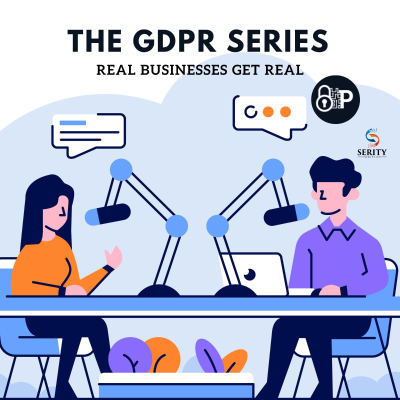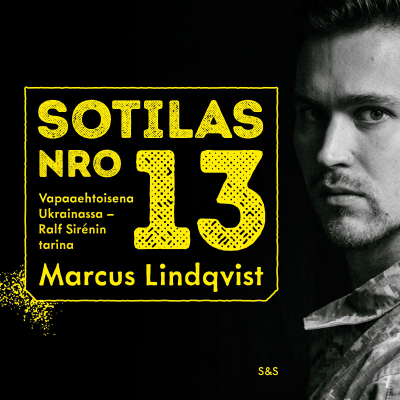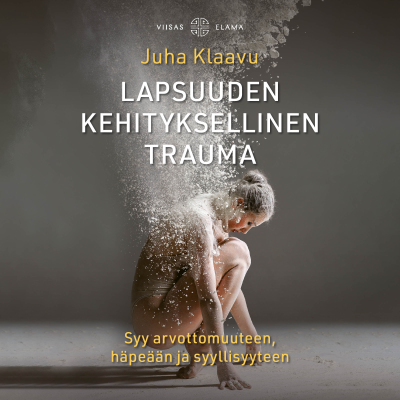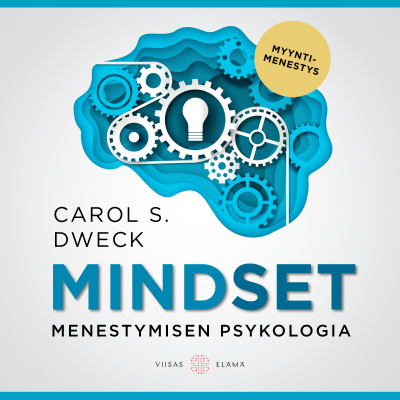
The GDPR Series
englanti
Talous & ura
Rajoitettu tarjous
2 kuukautta hintaan 1 €
Sitten 7,99 € / kuukausiPeru milloin tahansa.
- Podimon podcastit
- Lataa offline-käyttöön
Lisää The GDPR Series
The GDPR Series is a series of real discussion with Philipa Jane Farley and ProPrivacy on data protection, privacy and cyber security with real business owners designed to help you with your data compliance programmes in a practical way.
Kaikki jaksot
11 jaksotConnecting, the Power of Networks and Professional Sales with Mike Roberts
Today on The GDPR Series podcast, we talk connection, networks and messaging. Our guest is a solutions provider in the field of keeping mail safe, physical and digital. He is also a well-known LinkedIn personality who is passionate about professional selling. Listen on to find out how he uncovered successful ways to network, connect and sell professionally on LinkedIn through selling a solution for secure mailing. Our guest today is Mike Roberts the sincere and friendly helping hand behind ‘LinkedIn 101’ and the seamless secure and confidential mail communication solution Frama Rmail ™. Frama Rmail ™ is a solution that encompasses email encryption, tracking, large document delivery and e-signatures. Installation is fast and painless and help is always at hand with Mike as part of your vendor team. Through selling this solution online, Mike came to realise he had developed a successful method for connecting with and selling to his professional network on LinkedIn. Thankfully for us, Mike realised people might want to know the secret sauce. Mike offers a one-to-one 90 minute online session where he gets hands-on with you and your LinkedIn presence. This is followed up with a comprehensive report which serves as a guide for you going forward. Mike is a great believer in connecting with his clients in a personal way and also a great believer in building networks. In this episode, Mike shares some great advice about the type of messaging we should be focusing on that is client-centric and presenting information in a way that people can receive it. We hope that you enjoy it and that you do reach out to Mike be it for a seamless security solution or for a LinkedIn revamp. Tel: +447545292184 [tel:+447545292184] E-mail: mike.roberts@frama.co.uk [mike.roberts@frama.co.uk] LinkedIn 101 Website [https://www.mikedroberts.co.uk/] Frama Rmail ™ Website [https://www.frama.co.uk/news/single/frama-expands-digital-solutions-team/] Transcription: Philipa Farley: Hi, and welcome to our podcast called the GDPR Series, where we discuss data protection, privacy and cyber security matters that ordinary people in everyday businesses face. We have a series of really interesting and lovely guests, and we hope you enjoy listening. Philipa Farley: Today, we’ve got Mike Roberts on The GDPR series. I met Mike on LinkedIn, which is a great place to meet professional contacts. I think Mike, we kind of met probably when you were I don’t know if you had started with RMail, or how far along the lines you were a bit. It’s quite a while ago now that we’ve been connected. Mike is going to chat to us today about professional selling on LinkedIn. I’ve got his website open here, www.mikedroberts.co.uk [http://www.mikedroberts.co.uk]. The links will be in the podcast web page with other links that Mike will provide us. Do you want to introduce yourself? Mike, you probably do it far better than then I will and then we can get chatting. Mike Roberts: Yeah, of course. Thank you so much for having me on today. I really, really appreciate it. And, and for all your support recently as well, it’s been absolutely fantastic. Yeah. So a little introduction about me. So for the last 15 years, I have been helping people with their mail. And that was in the physical format. So I started off as a young, fresh straight out of college salesperson selling mailroom equipment for law firms and regulated industries. And I have progressed into the digital age. Yeah, so now I’m still helping all of those same clients and all those same customers of mine, protecting their mail, but in a digital format, so there’s two sides to me. One, I help firms and companies, make sure that their email is secure. And yeah, help them automate some of their processes with electronic signatures, and things like that. And then the other side to me is I absolutely love helping salespeople and professionals on LinkedIn. I’ve been using the platform ever since day one. And I just, you know, really enjoy showing people how it’s helped me how it’s helped my business. And, that’s me. Philipa Farley: Yeah, that’s that’s a fantastic summary, Mike. Honestly, like I hadn’t realised that you went so far back with it the mailroom equipment, type of thing. I thought that you were more digital, but that’s fascinating. I’m a bit of a geek for, like, old machines and things. So yeah, we’ll have to talk about that another time. Yeah, yeah. So you’re most of your clients. You mentioned law firms there, and professional firms. Who would you say are kind of the core clientele that you would deal with on the mail side of things? Mike Roberts: I would say there’s three: there’s wealth management firms in the financial sector. There are legal firms, so solicitors, barristers, people like that. And then there’s your other regulated industries. And I would probably say that that would be healthcare. Yeah. But wealth management firms are probably my biggest sector. And I and I’ve been thinking recently why that is. And it’s because when you’re speaking to a wealth management firm, for example, their clients are for life. So, your client will be with them from day one, and until the end of their lives. Yeah. So it’s absolutely critical that you make sure that everything is perfect from day one, and no better place to start really than making sure their electronic communications are secure. Philipa Farley: Yeah, I mean, in that context, Mike, like they’re based purely on trust, you know, obviously also with their strong obligations to the laws that govern them. But nobody wants to see a wealth management firm in the news for breaking trust. And that’s what we deal with in the GDPR, is it’s about to trust more than anything else. And once trust is broken, it’s so difficult to come back to that. So when you’ve got that, kind of, those stakes on the table, you need to make sure that what you’re using is pretty much bulletproof and easily managed by the client that’s using it. So I think that’s what’s come across to me on a lot of your posts and your videos, which I love. I love the way that you present your product on LinkedIn. You know, you’re not a pushy salesman, you engage with your clients, your customers, your potential customers, you know, you have relevant industry discussions. It’s fantastic. So, yeah, I think like you’ve got this lovely way of reaching people kind of where they’re at, and drawing them in and making them feel very comfortable. With the solution that you provide, and obviously you’re fully behind that solution with the knowledge that it’s one that works, you know, and I think that’s a great message for people to hear. Mike Roberts: Absolutely. And then one of the big key things that I talk about regularly is clients’ experience. And that hits so many levels with me, because when I’m talking to my clients who use Frama R mail. Yeah, and they’re, they’re needing email encryption or electronic signatures, it’s not all about security. A lot of it is about the client’s experience and making it easy for their customers. And I try to do that myself on LinkedIn. So when I’m, when I’m selling my product to potential clients, I want to make their experience good and I try to do that in as many ways as I can, whether it’s engaging content, creating videos, trying to use a bit of my graphic design in there. I just want it to be a pleasant experience right before we’ve even spoken. Philipa Farley: Yeah. And you know, I think that’s one of the things that I really love about you and your personality, Mike, like. Just to get really personal here is that you’re just, you’re such a nice guy. And I think I’ve known you for long enough now to know that that’s not like a huge pretence, you know, you’re not like some kind of, I don’t know, Jekyll and Hyde, where you have this persona online and a persona offline, you are genuinely a good guy. And that comes across through everything that you do. So you really like, live your brand, which is amazing. I know that I have sent some questions over to you. Can I ask you a couple and we’ll get back to this discussion because it’s flowing really nicely, you know, and back to you specifically your www.mikedroberts.co.uk website, where you offer LinkedIn training and other services. Yeah, because I think we’re kind of crossing over here a little bit now. Specifically, and I’m going to reiterate what you said to me: you’re not a GDPR expert, a specialist, but I believe that the work that you do and the services that you offer, bolster a message that we who kind of work purely in the field, are trying to send out, where you’re approaching it in a way and with a language that the customers understand. Sometimes we can throw language or things, throw requirements at things that really scare people off. And I’m very, very mindful of that because I don’t want anybody to be scared of owning their responsibilities to others’ personal data. So, I sit back a lot of the time and I kind of “watch and learn.” And I really appreciate somebody like you who is giving it to people in a way that they can receive it. You know, we have to learn as an industry, there’s an appropriate time to kind of get heavy about the topic. And then, there’s an appropriate time to kind of tone it down, and bring it right down to earth for people to receive it. So that’s kind of the mission that we’re on, if you want to call it that. So I asked you here, where did you first come to grips with or aware of data protection and the GDPR? Mike Roberts: I 100% fell into it by accident. When I was transitioning from physical mail into a digital mail specialist, I began to understand the basics of email encryption. What happens to a standard email as opposed to how an encrypted email looks? Yeah, and this all was happening around March of 2017. Philipa Farley: Yeah. Mike Roberts: So GDPR was slightly in the news. And people were talking about it, but as the months went on, it became more of a big thing. And I just thought to myself, you know, I was in a very lucky situation where I was learning this with everybody else in the UK or, I mean, as much as you know, people that weren’t, you know, “with it” as much as I was. Philipa Farley: Yeah. Mike Roberts: And by the time May 2018 came along, I was in a great position to talk to my clients and, by the way, my clients are not big companies. They’re probably in the one to 20 headcount. So they wanted to be able to speak to somebody, without having a techie jargon-filled conversation. And I was fortunate enough to be able to say, “Okay, well, I’m all I’m going to be talking to you today about is a Microsoft Outlook or Gmail plugin. And I’m going to go through the basics with you. And I’m just going to simply show you how you’re going to transition into basically being secure with your electronic communications.” And I did it in a way that I wanted to, I wanted to have it done to me in March 2017. And that’s basically one of the things I do where a lot of people want to go down the whole jargon-filled, really technical-filled conversation. And that’s not me, but if my clients want that, I’ve got people fantastic in my network, for instance, yourself with Serity, and things like that, who have got some amazing offerings and platforms and discussions that they can have. So not only have they got a great product with me that I can provide to them, but I’ve got a network behind me that really does know their stuff. So I’m very fortunate. Philipa Farley: Yeah, and Thanks, Mike for that. I do appreciate it because like, you know, you can approach us anytime and give us a shout and say: “Would you mind chatting to this person or that person or what’s our opinion on this?” And I think you’re quite great at that. Like, just sort of, minimally tagging people who are relevant to posts to hop into a discussion and I love that. You know, I love interacting in that way. And I think what you say is so important because, let’s just focus there, what you were saying about sort of the technical kind of reviews of a platform. Now, we would speak about vendor assessments, and due diligence, and all of these things. And, you know, there are certain parts of the GDPR that vendors have to stand up to. And then, there’s sort of more nebulous parts that aren’t very specific, like technical and organisational measures, you know, and you have to kind of dig quite deep to find out exactly what that means. And then we get to places where it says, you know, in proportion to the risk presented to the data subject, and then it’s like, oh, it doesn’t necessarily have to be state of the art, but it must be appropriate to that risk. And these kinds of things, like really frighten people. So I’m gonna say it again, that really, I love the way that you present your solution and particularly, that point of people wanting it to be an easy customer journey. Because going back to applications, that would have sort of mushroomed up around the time that the GDPR was brought into force, I would have tried a couple of email encryption solutions. And I mean, 10, 15 steps down the line, you still don’t have your message and you actually really want to just throw the computer out the window. It’s just an impossible landscape for people to navigate. So I think, really, it’s so vital, what you’re saying there, that people work together to provide the best, overall global solution – the networks work together. And this is another message we’ve been trying to put out as this podcast is that, yeah, competition is healthy, but actually, like we’re all much better off for working together, because our clients actually benefit from that, Mike Roberts: Well, you know, well, absolutely, for sure. And the thing is, with Frama, we, you know, we’re not a multi billion Dollar organisation. Yeah. Often when I’m demonstrating our mail to my clients, they ask about the support and I tell them about my team and myself. And I say to them, you know, chances are you could text me or call me at 8 o’clock in the evening. And if you need help, chances are if I’m available and I probably will be, I can jump onto a quick screen share, and help you send that email, or create that document for an e-signature. And a lot of people think Yeah, okay, you know, he’s saying that because he just wants the sale. But when they actually do make that call, or give me a text at 8 o’clock and realise that I am there, I’m able to help them think, do you know what? That’s absolutely fantastic, because people are looking for that little bit of extra customer service especially in today’s day and age. Because you know, our big giant competitors you know, yeah, they are a customer and there is a figure on a whiteboard to them. Philipa Farley: Oh, yeah. And all the call centres are outsourced, and good luck to you actually finding something that’s not a computer that’s answering questions. My favourite trick with the help bot is “Please may I speak to a human?” And, they all seem to have some kind of code programmed in to pass you off on to, like a human being, that actually will answer the questions, you know. And what you’re saying is so important, because I’ll just put a note here, because this is kind of like evergreen content. But we’re recording this in the middle of the lockdown in 2020, where we’re working from home offices and people aren’t having meetings in person unless you’re essential services. So, that kind of goes to what I’m about to say here is that, you know, you say your customers are in the bracket of people, you know, in one to 20 teams, of one to 20 in the business. So not more than 20 employees, where we ourselves, we deal with a lot of people in that bracket, a lot of local businesses around Cork city and Cork county. And then we would have a lot of startups that we deal with globally. Also, in, like, the 1 to 5, 10, 20, not more than 30, teams, because when they start getting to that stage, they start hiring in-house and we kind of help them cross over, you know, Internet security and data protection expertise that they need on board permanently. And, going back to my point of people working from their home office, and that I think, like I’m, I see, maybe a shift in business where, you know, obviously, there is a place for the enterprise and there always will be the enterprise-level business, but there will be a lot more smaller businesses around, Mike. And, you know, we can’t, I think this is just this is just me personally, we can’t think that anymore in business that the goal is to make millions and millions and millions of Euros, Dollars, Pounds, whatever. Because what we’re seeing now is this sort of humanity around us where, that’s not really appropriate, you know, the human connection is far more important than the money making. Yes, the money does grease the wheels of the business to continue. But I think what’s really coming to the fore, is that that human connection that one to one, reputation matters. You know, and I really love the model that you’re building here because I think that’s, that’s core to you. That’s the LinkedIn sales, professional selling, that you do the help there is really, really core to that. And it, kind of, is parallel to data protection and the trust, you know, and it’s a very philosophical message and, and a lot of people kind of battle with that. That it’s not just another law, you know. That we all have to do and we have to tick the boxes, and we have to, kind of, it’s such a drag, it actually really should be like a pillar to your business that: How do I care for my customers? What am I doing to make sure that their trust is minded? It’s taken care of. And, you know, they deserve to have that trust. So, yeah, like it’s GDPR and data protection, and it was a drag, and it shouldn’t be a drag. But I think, you know, with enough of a message going out, people will hopefully start to see that. Mike Roberts: Yeah, absolutely, totally agree. Philipa Farley: My soapbox. My soapbox, there! I asked you a second question here: the impact on you personally of the GDPR. And it’s fine, like if you haven’t had kind of a personal rumble with the law as such. Everybody who follows my Twitter will kind of have a laugh every now and then about the things that I post where I might get into a situation. The one was the insurance broker or company and asking for the blood tests because we are kind of newly arrived in Europe enough, for you know, HIV to be a concern, but the way it was handled was just really, really difficult and it took months before the correct information, you know, came out. And like, it would have been so easy for me just to sign the paper and go for the test, you know, like, whatever. But sometimes I just get to the point where I think like, if I don’t say something, you know, other people are going to have this bad experience and not get the information that they are required to get in the law. So, I kind of do stand up for it a little bit. Have you had any personal experience with the GDPR data protection that you could share with us I want to share with us, or want to share with us? Mike Roberts: Personally, I don’t think so. But, you know, what we do as a company at Frama is we are learning, just like everybody else. And if we ever get anything wrong, then we hope that people will tell us and make sure that we can put it right. And, you know, we’ve had people that have approached us with regards to our privacy statements. Yeah, asking is about asking us about, you know, our products and where we keep people’s data? Yes, yeah. And, you know, again, we’re in a very brilliant situation with our solution because we aren’t a cloud-based tool. Yeah. Yeah. So unlike other email encryption companies that take a copy of your email, put it in the portal of somebody else’s computer, i.e. the cloud. You know, we don’t do that. And so again, it’s nice, it’s a nice weight off people’s shoulders, knowing that we’re not taking copies of people’s emails and putting them in the cloud somewhere. So, I think we’re doing good. And again, I’d ask anybody out there, you know, please, if there is something that we can improve on, we’re always open to learning. Philipa Farley: Yeah, and that’s an amazing statement, right? Because a lot of people kind of just tuck their heads under their desks, and close their ears, and don’t want to know about it. Because, I think and you’ll hear this as a thread through the other episodes, where I say every now and then that I find quite a few Data Protection team or Data Protection Coordinators, the Data Protection Officers in businesses that have not been afforded the training and the backup that they should have been afforded. So, you’ve got people that have just, kind of, been appointed in positions and have said yes, and they’re trying to learn on their own. And you might come across a product or a service or website online that actually technically is not compliant with the GDPR. But to, kind of, shred it, if I can say it like that, on a professional network and publicly name and shame and, you know, say things about it. We’re forgetting that there are real people behind that you may be struggling with resources in their jobs. They may be struggling with the time in the day, you never know until you approach somebody personally. So I think what you’re saying there is an excellent message for people to receive, is that if there is a problem, please pick up the phone or send us an email, and let us know, you know, you will definitely get an answer, and things will be improved. And we all get better that way. Mike Roberts: Absolutely, absolutely. And the other thing is, you know, I would highly recommend people to use online learning platforms. I know a few of my clients who’ve used Serity, have given me absolutely fantastic feedback. So, yeah, I, you know, well done on what you do as well for your clients. Philipa Farley: You know, we, we, we hope to democratise the law a little bit, Mike, and let’s let people, kind of, you know, get that knowledge without too many barriers. Okay, so the third question here is: where you’ve seen that you’ve seen opportunities for your own business in the context of the GDPR. I don’t want you to answer in any GDPR-centric way. And I would like you to please tell us about your LinkedIn services for professionals, because I think, if I may be so bold as to say it, that’s kind of the opportunity that came out of this for you. Mike Roberts: Yeah. And so I’ve used LinkedIn from day one. I’ve never been on a LinkedIn training course. And I’ve never sat in a classroom with somebody, you know, on a PowerPoint presentation telling me how to use it. I spent many, many years using it for no real benefit, I suppose I was getting no interaction. And it was only really, probably in 2016 or 2017, where I actually started to record and look at why things were turning around for me. What was it? I was doing something different? Philipa Farley: Yeah. Mike Roberts: And, you know, within a 12 month period, suddenly I was getting lots of brilliant people in my network. I wasn’t doing anything ridiculously time-centric or it or, you know, throwing loads of money at the platform. But I was just getting to understand a little bit more about personal branding, what people enjoy seeing, and how to make your content different to other people’s. And then I started just kind of delving a little bit deeper into it, you know how Google and the Search Engine Optimisation (SEO) works with LinkedIn. Philipa Farley: Yeah. Mike Roberts: And how to make yourself different from everybody else, in your industry and competitors. And it was literally just just over a coffee one lunchtime with a friend of mine, who I spent half an hour with, and I gave him some tips and tricks for his LinkedIn profile. And he said, you know, you should be doing this as a service that you teach, you know, I’ve never heard it before. So I just decided to call it LinkedIn 101. And it’s, it’s an hour to 90 minutes with somebody on a screen, sharing a session. And all I do is I just absolutely pack in as much as I can in that 90 minutes to look to look at the front page, and help people with their headline, their summary ideas for content. Philipa Farley: Yeah. Mike Roberts: And we just try and squeeze as much as we can into our session so that the person that I’m speaking to, can just walk away after that 90 minutes and think, you know, there’s a couple of things there. There’s 1, 2, maybe 3 things that I can walk away with and put into practice immediately. And so far, I have a 100% success rate in the fact that the people that I’ve provided this service to have actually seen an increase in lead generation, or conversations. So, I, that just absolutely delights me because when I would, I would put all of those years of practice into giving people nice, bite-sized chunks so that they’re not just sat there; there’s no PowerPoint presentations, and there’s no classroom environment. It’s very interactive. And they walk away with a PDF ebook at the end of it with a personalised report on exactly what we’ve discussed. So I love it. I just love what I do. Philipa Farley: Yeah, I know. And that really comes through and it is amazing, Mike, I would have personal knowledge of a couple of the people that you have assisted. And, the difference is remarkable. And I’m going to bring us back to what we were chatting about just before I think we press record there and say that: Basically, the way that you’re teaching people to use LinkedIn to develop those relationships, you know, and to make those sales is kind of what people need to learn in terms of data protection, and e-privacy, specifically, you know. Long gone are the days of using analytics person analytics, mailing lists, and just bombarding inboxes with emails in the hope of a sale. You know, let’s email 10,000 people and we’ll be lucky if we get one sale out of it. And that’s a really bottom line true statistic because, around the time the GDPR came into force, I would have sat with many, many people going through their mailing lists: How do they get the data? How do they compile it? Could they tag origins? Had they obtained the correct consents? You know, could they justify under legitimate interest? And then going through it and saying to business owners, who are very, very concerned about, you know, working through this prospect of losing contact is how effective are these mailing lists anyway? Particularly like in a b2b context, and it turns out, most people were not actually making any sales from them. So I really, really love what you’re doing here. And I have hope that people do take up the opportunity to get in touch with you and, to sort, of revamp the way that they think about sales. Sales are not scary, you know, you’ve got something people need. And I think you’ve said that to me before people need it, they need to hear about it. So take the opportunity to do that, you know, into being kind of proud of what you’re selling and what you’re doing. Mike Roberts: At the end of the day, I am a salesperson, and I have been ever since I left college, well around 15 years ago now. And what I tell people time and time again is, forget your mailing list, forget the spam emails. Basically, start with, and again, I bring it back to LinkedIn, because that’s where I’ve made all of my success is: start with one success. Let’s call it a penny, and then then turn that into another penny. And before you know it, you’re springboarding your way through to this fantastic, successful world of sales where it’s an enjoyable experience. And, and everything that you’re doing is off the back of your last major success, where you’re helping them. They’re helping you. And suddenly, it just becomes a fantastic world to be in. And that’s what I try to help young people with, especially people who have just started off in sales. Yeah, they might not be on that journey that I had 15 years ago. And they’re bombarded with this whole world of digital solutions to this and video this…All you gotta do is take it one step at a time and before you know it, it’s it’s, it’s great. Philipa Farley: Yeah, no, and that’s, that’s a fantastic message. Thank you for sharing that with us, Mike. Okay, the opportunities for your clients. I think we’ve just mentioned that here. So let’s not spend too much time on that. Unless you’ve got a sort of a story or two you’d like to share with us. People’s kind of them being turned around on LinkedIn where it has made a deep impact on their lives? Mike Roberts: Well, I do get a lot of messages from my clients, both Rmail and under LinkedIn training. You know, and I try to put that on my testimonials page. And I just want people to walk away with one thing, which basically helps them gain that extra sale. And, I say to a lot of people, when the extra sale comes in, from what I’ve taught you, use it and piggyback off the back of that and make sure it’s, you just continue that success. And, I think people just enjoy it and enjoy the short, fun, jam packed time that we have together, rather than sitting in a classroom on death by PowerPoint. Philipa Farley: Yeah, exactly that those days are long gone. Yeah, thank god for that as well. Okay, I’m going to ask your personal opinion on a platform like LinkedIn, in our very likely future of work from home remote work-type models, and I sent these questions to you two weeks ago. I think I just, maybe, tweaked the last one maybe more than two weeks ago. So small little inside laugh there. I’ll ask it again, what’s your opinion on a platform like LinkedIn in our very likely future of work from home remote, remote work type models? Mike Roberts. My opinion on a platform like LinkedIn is, I think they’re fantastic. Philipa Farley: Yeah, yeah. Essential. Mike Roberts: Yeah. I think you can make them fun. The technology that is available to us nowadays, has presented this with an opportunity like never before. And, I’ve been doing online meetings and video meetings now, every day for the last, probably, three years. And I just think that they’re great. It saves time. It’s easy to do, once you start using it. Philipa Farley: Yeah. Mike Roberts: And then I think the opportunities are endless. I really do especially with them. Now that we’ve, the globalisation that we’re faced with, I know that you and some of the contacts that you’ve connected with me, Andrea, you know, connected me with a wonderful company in Mauritius. And without the technology available to us, I would have never had the opportunity. So I thought I think it’s great. Philipa Farley: Yeah, it is. I mean, I kind of grew up in isolation, if you can call it that, like our nearest city was about 100 kilometres away with the nearest sort of rural hospital 25 minutes away from our farm. And when we had that first screaming modem in the house, connected to a small satellite dish that connected us to the telephone services, it revolutionised and changed our world, you know. Just understanding that in 5 or 10 minutes, you could get something from the other side of the earth, that had taken weeks or months previously to organise. And I really do feel that excitement that you’re bringing forward in your statement there. Because you’re right Mike, the opportunities are endless. Technology might be a barrier for some but you know, we all have our challenges in business, whatever area it’s in. We have to recognise that and work towards overcoming those challenges. But yes, video conferencing, video meetings are definitely a part of our future. And I, for one, we’ve, we’ve worked in a home office, I dip in and out of co-working spaces as my clients might require. But, I prefer a home office because of the absolute security. You know, I’m kind of guaranteed for the work that I’m doing but also the work life balance. That’s very important to me. So I really love technology and I love the opportunities that it presents us with You know, and obviously from the data protection and security point of view, and this goes back to your Frama RMail point is, you know, we need to make sure that we’re using the correct tools to help us enable enable us to do our work in a compliant manner. So, yeah. Mike Roberts: And it also sets you apart from your competition as well, because one of the things that I do regularly is video email. And I’m surprised it hasn’t, you know, become more popular. It’s popular in the USA, but not quite so much in the UK and Ireland. And, one of the things that I tell a lot of my clients is, look, if you’re in a competitive situation, you know, why don’t you be that person that sends your prospect or client a video email, instead of blank text on a white background because, you know, things like this, and the technology is so readily available to us and nobody’s really doing it. It’s going to set you far better apart from anyone else. And so it’s just there to be taken, and the opportunities are there right then and to be in sales now is probably the best time ever to be in sales, even during this lockdown. It’s a huge opportunity. Philipa Farley: Yeah. And again, Mike, I really really hope that people connect with you and get in touch and get some of your enthusiasm first hand, because I know that it has made a big difference to me personally, and quite a few people in my professional network and personal network. You’ve been an amazing assistance in great times of need sometimes and thank you for that. Can I end with one last question here, because I know your time is very precious. And thank you for spending the hour with us. We really do appreciate it. One piece of advice to potential clients of yours. Mike Roberts: So my advice would be: Don’t worry about things like email encryption, and, you know, ways of automating your business processes. It doesn’t have to be, you know, long winded IT, technical discussions. Myself and there are others out there. You know, we are humans and we can have a one to one conversation with you and make it easy for you. Just don’t worry about it and just, you know, speak to the right people. Philipa Farley: Yeah, take action, I think it is a good one. And any potential advice to you potential, or any advice to potential clients have those for your LinkedIn101? Mike Roberts: I would say: Don’t be afraid of social media, especially LinkedIn, it’s there for you to have to create content. It’s about you and your personal brand, not necessarily your company. People are on there to learn about you, not your company. Philipa Farley: And that’s a really good piece of advice, Mike, because I think we kind of step into this professional sort of persona. We’re trying to align. I’m speaking personally here, like, my message with what we’re doing with a company. We’re actually like, you have a unique personality that needs to come out. So that’s a fantastic piece of advice. Is there anything else you’d like to say? You know, any, any, any contact places you prefer? Obviously, LinkedIn, you know, you’re there. Do you have a Twitter account? Are you on Facebook? Where can people find you? Mike Roberts: So they can find me on LinkedIn. They can also find me on Twitter, which is where I post more things about social media and ideas for posting that’s @frammamike. And they’re the best places to contact me. And the other little piece of advice, which I’ve just realised I could have said before, is when you are posting on platforms like LinkedIn, always put yourself in the mind of your client or customer. Just think about what it is that they would like to see if you were in their shoes. That’s probably a really strong piece of advice. Philipa Farley: Yeah, that’s fantastic. So thanks so much, Mike for joining us. We’ll obviously share the things that you’ve spoken about in the post that will go along with the link to this podcast. And we’ll put it up on social media so people can contact you easily. Really, really thank you. Your presence in social media is a delight, and it’s fresh and I love connecting and chatting. Thank you. Mike Roberts: No, thank you as well. I really, really appreciate the opportunity. Philipa Farley: We hope you enjoyed that episode of the GDPR series. If you do, please subscribe. Find us on social media. We’d love to have a chat. [https://matomo.proprivacy.ie/piwik.php?idsite=2&rec=1&url=https%3A%2F%2Fwww.proprivacy.ie%2Fgdpr-for-small-business%2Fconnecting-the-power-of-networks-and-professional-sales-with-mike-roberts%2F&action_name=Connecting%2C+the+Power+of+Networks+and+Professional+Sales+with+Mike+Roberts&urlref=https%3A%2F%2Fwww.proprivacy.ie%2Ffeed%2F]The post Connecting, the Power of Networks and Professional Sales with Mike Roberts [https://www.proprivacy.ie/gdpr-for-small-business/connecting-the-power-of-networks-and-professional-sales-with-mike-roberts/] appeared first on ProPrivacy | GDPR Privacy Cyber Security in Cork, Ireland [https://www.proprivacy.ie].
Connecting, the Power of Networks and Professional Sales with Mike Roberts
Today on The GDPR Series podcast, we talk connection, networks and messaging. Our guest is a solutions provider in the field of keeping mail safe, physical and digital. He is also a well-known LinkedIn personality who is passionate about professional selling. Listen on to find out how he uncovered successful ways to network, connect and sell professionally on LinkedIn through selling a solution for secure mailing. Our guest today is Mike Roberts the sincere and friendly helping hand behind ‘LinkedIn 101’ and the seamless secure and confidential mail communication solution Frama Rmail ™. Frama Rmail ™ is a solution that encompasses email encryption, tracking, large document delivery and e-signatures. Installation is fast and painless and help is always at hand with Mike as part of your vendor team. Through selling this solution online, Mike came to realise he had developed a successful method for connecting with and selling to his professional network on LinkedIn. Thankfully for us, Mike realised people might want to know the secret sauce. Mike offers a one-to-one 90 minute online session where he gets hands-on with you and your LinkedIn presence. This is followed up with a comprehensive report which serves as a guide for you going forward. Mike is a great believer in connecting with his clients in a personal way and also a great believer in building networks. In this episode, Mike shares some great advice about the type of messaging we should be focusing on that is client-centric and presenting information in a way that people can receive it. We hope that you enjoy it and that you do reach out to Mike be it for a seamless security solution or for a LinkedIn revamp. Tel: tel:+447545292184 E-mail: mailto:mike.roberts@frama.co.uk https://www.mikedroberts.co.uk/ https://www.frama.co.uk/news/single/frama-expands-digital-solutions-team/ Frama Home Office Initiative – https://www.frama-rmail.com/en/rmail-test-licence/#registration-form! Receive 500 RMail messages per user and per month immediately, free of charge and without obligation until May 15, 2020. The account will then be set back to the standard limit for free use (5 units per user).
We’re on a GDPR mission with Andrea Manning
Today on The GDPR Series podcast, our focus is bringing the GDPR back down to earth. I chat with a rare woman in cyber (and data) who presents her GDPR message to businesses through the lens of real life cyber security issues. With a very interesting background in the hotel, travel and leisure industry, we are treated to a discussion with somebody who knows all about taking care of masses of far and fast moving data! Listen to find out more. [/wp-content/uploads/2020/06/gdprcybersecuritysmallbusinessandreamanning-scaled-1.jpg] Our guest today is Andrea Manning. Andrea set up Data Influence with the intent to influence how we think about data. She is on a mission to change some of the negative perceptions and scaremongering that sprung up around GDPR. An eternal optimist she highlights the benefits of doing GDPR and likens it getting a full health check for your business. She talks about how we all now have a duty around cyber security and that it should become more user-focused. A passionate champion for small business which often gets left behind, her focus is on plain speaking and practical solutions. In her own business, she advocates training for everyone in the organisation and creating a culture of curiosity.In her words, make your staff part of the solution, not the problem. It’s clear from listening to Andrea that she also has another agenda. And this is to attract more women into cyber security and data protection. A natural mentor and a diverse role model herself, Andrea is keen to highlight how women bring varied backgrounds, mindsets, challenges, world views and family dynamics to the table making them natural problem solvers and an ideal fit for the world of cyber security. Drawing on an extensive career in Information Systems and Marketing, Andrea brings a fresh approach to Data Protection. Andrea’s Links: Read more and contact: https://www.datainfluence.ie [https://www.datainfluence.ie] Free training resources: https://www.datainfluence.ie/resources [https://www.datainfluence.ie/resources] Interview transcription: Philipa Farley 0:01 Hi, and welcome to our podcast called The GDPR Series, where we discuss data protection, privacy, and cyber security matters that ordinary people in everyday businesses face. We have a series of really interesting and lovely guests, and we hope you enjoy listening along with us. Good morning, Andrea. It is fantastic to have you here. Thank you for joining us. Andrea Manning 0:26 Hi, Philipa. Thank you for having me. Very excited. Philipa Farley 0:30 Okay, so as you know, we’ve been doing a series called The GDPR Series. In my head, I keep thinking the GDPR issue, which it really is, but anyway, it’s The GDPR Series. And we’re talking to people across business, SME owners, as well as people who work in the industry, and you are actually both. Your focus is not entirely on the GDPR and Data Protection. You have an extended focus. I will leave you to introduce yourself. Okay, while I go over and find your website on a screen, so go for it. Give us your pitch Andrea. Andrea Manning 1:16 Okay, so I have a very varied background and the best way to describe me is: I am a square peg that does not want to fit into a round hole. I set up life in the hospitality industry, but I’ve always been in marketing and in sales, but I was that child who could programme the video recorder, and I’ve always loved tech. And, with everything I do in life, I always start at the position of “yes!” and then I go and figure out how. And that’s tech, that’s business, that’s everything. So I went back to college and did a degree in Business Information Systems. Same thing, I just said yes, and then kind of figured it out. I had no idea what I was taking on, and the next thing, there I was doing programming and data modeling and financial accounting, thinking: “Oh my god, how did I land up here?” But, somehow, sort of that one step at a time approach, I got to the end, and I finished my degree. And, during my degree, I got to do an internship, which is the most valuable part of the degree, and I would recommend this to anyone. And I landed up at the tech startup, One Page CRM. And, same thing, he looked at me and he was kind of seeing the square peg and couldn’t find a hole for me. And I mentioned that I love anything legal, and, if I’d had a second life, I would have done a legal degree. And then he went: “I’ve got just the job for you!” And it was GDPR, because this was prior to May 2018. And I hated it, but I’m an optimist. So I took it and I kind of consumed GDPR. There was nothing I didn’t know about GDPR and I was determined to find the positive in it. And I did find the positive in it! And that is what I did. So, my job was to kind of map the data, figure it all out, see what the competitors were doing, and then be the communicator back to the company, to explain what GDPR was. And that was another side that I realised I loved, was the training. I mean, they made me do the training for the developers. And I was like: “You can’t make me tell, you know, software engineers about password protection?” Well, you can, because there was one who had their passwords on a post-it – so, everybody needs training! And you must never assume! So it was through that internship, they kind of planted this love for GDPR. And one of the funniest things was – the whole way through – everybody was sending out these re-permissioning emails. So, I was dealing with them at One Page CRM, but I was also dealing with them in my own company. And, every time somebody got one of them, they’d forward it on to me. So, while the average person was getting 10 a day, I was getting a hundred a day. That is my lasting memory of GDPR, and I was seeing them from people, saying: “But, my solicitor sent me this one, so it has to be right!” or “But, my doctor sent me this one, so it has to be like that!” No. Philipa Farley 4:12 Yeah, I think everybody completely damaged their domain reputation scores during those couple of months, because I think people were just like, deleting, and most of them just landed up in spam anyway. Andrea Manning 4:25 Oh, gosh. And they just followed like sheep and you know what it reminds me of? I lived in the UK for a long time. And there was this whole thing with Brexit, they kind of analysed why the EU had such a bad name. And it was because the newspapers every day, were printing stupid stories like: “The EU says we must have straight bananas. The EU says this. The EU says this.” And it was actually nonsense, when it was that drip feed, and then people believed that the EU was a bad thing. And, I almost feel like the same thing happened to GDPR – this drip feed of nonsense that wasn’t even true. And now, everybody has this completely wrong perception of GDPR. Which brings me to how I set up Data Influence: I needed to change the perception of GDPR. Philipa Farley 5:10 Yes, absolutely, Andrea, I’ll add to that. And I think I might have said it to somebody else; it will probably come up in one of the other podcasts. But, if it wasn’t one with Liam, that I was very surprised, coming from South Africa, where our sort of culture, for the most part, has worked together, you know, give somebody a hand up. Because if you succeed, I succeed, you know, and it’s better for everybody instead of just sort of shoving each other down. When I sort of started looking at social media, you know, and talk around data protection and GDPR specifically, this phrase “scare mongering” came up over and over and over again: “Oh, don’t pay attention to that, that person is a scaremonger. Don’t pay attention to that, that is just scare mongering.” And I think that the industry did itself no favours by entrenching that phrase into everyday language and attaching it to GDPR, because we’re now in a space where people’s kind of automatic reaction to you saying: “Have you, you know, how’s your compliance going? How’s your data protection compliance? You know, have you dealt with your GDPR obligations?” They – the triggers – are “Oh, I don’t need to she’s just scare mongering.” And it’s just like this wall up in a lot of people; they don’t want to deal with it. So, I don’t know what you have to say about that. Because, like talking about getting a fine… yeah, I know, it’s extreme to say everybody’s going to get a 4% whatever global annual turnover fine, but talking about it, and saying “That’s the potential.” The potential is also that the Commission comes in and says: “Oh, sorry, you can’t do this” – like they did with Facebook last week and the dating app. “Sorry, you can’t do this. You have to stop while we investigate.” And while we do the correct, you know, compliance assessments, the documentation assessments. Okay, so, is that scare mongering? Or is that actually creating awareness around the reality of what this law has the potential to do? Andrea Manning 7:27 Well, there’s a lot to unpack there. So, my background has always been in small business, and I understand small business. And I do think the GDPR puts a really unfair burden on the small business. It’s one regulation that Facebook and the man with four employees needs to still, you know, do together. So I just say… I start off and I say people, and they are quite shocked. I mean, you know what, let’s just put GDPR in the bin for now. Let’s just put it over there. And let’s not even talk about it. And let’s just talk about your business, and then, I start just in an almost conversational form, saying: “You know, does everything – when you send your guys out? Do they have all your customer data on their mobile phones?” And, and I know every I always know the answer to this question. I’m like, lawyer, don’t ask a question until you know the answer. I’ll also ask “You got all your passwords on an Excel spreadsheet on your computer?” They’re like, yeah, because everybody does the same thing. But, once I start explaining to them, like, what the repercussions of that are and how easy it would be to gain access to all their passwords, and then imagine if they lost all their customer data, and they kind of woke up in the morning and they came in and he there were no customer records, there was no details, there was nothing, then what do they do? And then, you start to build and you say: “Okay, this is all you know, this is cyber security.” And cyber security is a lot more sexy than GDPR. So we go through this and it’s, it’s real life stuff. We all have millions of apps. You know, the typical small company, and that is Ireland – yes, there’s the big enterprises – but it’s actually small businesses. Philipa Farley 8:58 250 000 SMEs. Andrea Manning 9:01 Yep. So you’re using things like Monday.com and using Gmail, and you using, you know, all these little products. You probably don’t even have an IT department. Philipa Farley 9:11 Nobody does, Andrea. Andrea Manning 9:13 Yeah. So who’s managing these? Who’s making sure that they’re all secure? Who’s making sure that who’s got access to them or like the interns left and now she’s got all the passwords to everything? They don’t have an IT department. So I’m their IT department. I’m coming in. I’m saying: “Okay, let’s draw a picture of what’s happening, what you’ve got, where it’s going.” And then they’re sorted out – let’s just make it a little bit safer. And, if I explained how easy it is to crack a password with a great story? And, by the time I’m finished, they’re like “Okay, how do I sign up for a password manager? Then, moving on to the next stage and I just say it’s just about getting your GDPR ducks in a row, document everything, just have all the paperwork to prove what you’re doing. And then your GDPR is done, but you’re also in a great position that your company is not going to fold, because with like, ransomware, they say that if a small company is hit with ransomware, within six months, they fold. Philipa Farley 10:08 Yeah, yeah, no, we got those figures at the breakfast briefing I was at last week. And, for some companies, it’s as soon as three months Andrea, it does not even extend to six months. Like it’s done. Andrea Manning 10:28 Just before Christmas; and it really kind of sticks with me. They were based in Arkansas and they were a tech marketing company, and they were doing so well, that they were giving away a cruise, as like a prize to their top employee. And they were hit with ransomware and, this was just before Christmas. Second of January, they had to let the 300 staff go and that was a family firm that had been in business for years and that; it honestly it just breaks my heart. So, when I want to help people that is it is truly from that position that you’re a small company. And if you just had a little bit of GDPR, which is just some housekeeping, that company would have been fine. They would have been able to recover, they would have had a backup, they would have had a plan. You know, it’s just prevention. Philipa Farley 11:13 Yeah, yeah. But, having said that, it’s just prevention. Do you not think that most people just don’t think about this stuff? It doesn’t cross their mind to think about ransomware and the effect on their business? Andrea Manning 11:31 Do you know what? There are two parts: first of all, a lot of people just don’t care. Like, they don’t even get to the point where they want to find out whether they should think about it. But, a lot of people, we live in our filter bubble so we’re we’re on Twitter in that community. We’re on LinkedIn in that community Philipa Farley 11:47 And on that note, before you carry on, I’m so aware of that because it’s like if you get into a group think state and you create blind spots. Andrea Manning 11:55 Look, I know what malware is, but there’s people who don’t know what malware is. I know that you should – like we were talking about this yesterday – you know how many people, they go to a web developer they give their website is built on WordPress, web developer signs off, who does the update? Nobody. Philipa Farley 12:14 And they don’t even know how to log in, Andrea. Most people don’t know how to log in to those websites. And so, here we see like a bit of a sort of a conundrum coming in, where, like, you would have a lawyer saying that kind of oversight should be built into law, and then translated into systems. So by oversight, I mean, web developers are kind of an unregulated, profession, right? Anybody can put up a website. Anybody can put up a website and just be a web developer. Okay, but in all seriousness, like they obviously have a skill set that is sorely needed and they are very much appreciated. This is nuts, you know, condemning web developers by any means. We’ve all done it in our past, I suppose, as a bit of our jobs. I’m sure you have made websites for people at one stage. But like, is there a code of conduct? Is there a standard way of handing over a site? Is there, you know, a recognised checklist of security measures? And here we go into data protection by design and default. They’re bound by these things as well. And I think that they don’t even realise, Andrea, that they’re bound by them as service providers to people, you know. Andrea Manning 13:37 That’s it. And, I mean, sometimes their contract is just to hand over a website, and there’s no further contact. And then, somebody in marketing looks after the website, but then they leave. And, whose job is it to do the updates? And that’s why I’ve just where it’s always said it’s like, if you go to the GP once a year and have your sort of NCT, have all your bloods taken, have the whole thing, you probably never need to see them again until the following year. And you could just do it for every company, go in and have a 24 point check or probably a few more points than that, and just go through all these things and do a check for their sort of health. But that’s what GDPR is, and people need that, so you’re getting a free health check where your company, Philipa Farley 14:19 Yeah, and you know what, most of the time, I would say, nearly every single one of my clients has discovered some kind of cost saving along the way. You know, so they might be spending money on your consulting or your you know, your implementation of a system to manage data and manage their compliance. But, if you do the cost analysis over even a year or two, they’ll land up saving money somewhere, be it in subscription fees for software, they didn’t need, be it in time saving, be it in whatever. So we see those positives, you know, and trying to get the message out, is a challenge. But that’s why exactly why we’re we’re here talking, very obviously. Andrea Manning 15:06 Hopefully, it will get there. Like you, automatically now, you bring an accountant in for that same reason: just pay a professional that knows their stuff. And actually, you know that they’ll save you time and then, more than likely, save you money. And you put money in your budget and you pay for a professional. And I just think that the data privacy person, or the GDPR person, or whatever you want to call them, is going to become that professional. That’s what we have to set ourselves up as, within that suite of professionals that . We have to set ourselves up at is that that in your your your suite of professionals that you get in when you need to do stuff. Philipa Farley 15:44 When we think about it, we would like to see and, and again, I said because I’ve said it before, this is not kind of a money making promotion, not at all. It’s really like, very deeply, trying to create that sense of awareness for the need for that check, and the need for that partner, and the need for that expertise. So, we would like to see compliance, cyber security compliance, because it will become that, we’re leading that way. Where we’ll have like a GDPR for cyber, if you want to say it. It’s kind of written in any way: your security measures are needed. But I believe that, very soon, we’ll start seeing the recognised set of regulations for cyber for businesses. The cost is too high at the moment for cyber non-compliance. So, we would see cyber compliance and data protection compliance as a core pillar in the business. You know, compliance should be a core pillar for everybody just like a marketing, your whatever. You know, if you don’t do it, the cost to your business is so high. You know, you can hear I really, like I really battle to process the mindset of a business owner that doesn’t want to have their ducks in a row. That’s just me personally. Andrea Manning 17:15 But then, there’s another side of it. And we are all guilty of this. I mean, have you ever been to your GP and told them that you Googled your symptoms? Philipa Farley 17:21 Oh, every single time and I say to him, I know what you’re going to say. Oh, yeah, I know. Because Yeah, exactly. Andrea Manning 17:29 We’re all kind of gatekeepers of our domain and we’re all guilty of this. We do it, and unfortunately, the cyber community and the privacy community are just the same. And it’s like “Oh, we know so much! Article 99 and Article 17 and Article…” And we’re like: “Listen, you have to have us because we’re, you know, we’re the experts, but we are not prepared to share it.” And I think – where I want to make the difference and I know you make the difference – and it’s a bit like, when you build WordPress websites for them, it was to empower them that when you left them, they could go make their own edits. So, when we go in and do GDPR, if we train them and teach them and said: “Okay, now, you know it!” – knowledge is empowerment. Yeah, and you know this stuff, you can manage this yourself because you haven’t got a huge budget. I’ll just come back in a year’s time and give you another health check and give you another list of to do’s and that way, you know, like an app that tells you what you need to do with the fixes that you can manage your data yourself. We have to, as privacy people, empower everybody and not be the gatekeepers and not use things like Article 17 and Article 19. Because really, who actually knows what that is, other than us? Philipa Farley 18:37 Yeah, exactly. Andrea. And that was precisely what I said to a couple of the SME owners that we’re chatting to; to please come and talk to me, because they’ve done their data protection compliance, and a couple did it themselves; entirely themselves. And I said to them, I think we speak a different language to what people need to hear. So, part of this discussion is exactly what you’re saying there: that we need to find the middle ground, or we actually need to go as, as professionals in this field, we need to go further than the middle ground, and we need to meet people where they’re at. And it’s quite, not a scary thing. But people battle with this idea of giving knowledge, because then nobody’s ever going to pay you for it. But like, I know, myself, we give so much information out. Like I I’m very aware, you know, as a lawyer, even though I’m not really allowed to say that whatever in Ireland, like, but I’m very aware as a lawyer, that you have to give information responsibly. So I’m not going to chuck out a bunch of templates and policies and whatever and say to people go wild, because there is the potential for error there. If I do say: “Here’s a starting point to do your documentation. You will please refer it back to me to check for you, to make sure you haven’t made A mistake, you know.” Andrea Manning 20:07 But that’s the perfect solution. So it’s a little bit of DIY. It’s understanding the budget. It’s understanding very limited resources. But it’s also teaching them and empowering them. Yeah. And then they’re not that, you know, the consultant sometimes gets a bad name, you know, come and do this. He has my bill. Philipa Farley 20:28 I sent you some questions, Andrea, that we are talking about, with everybody who comes on the chat. And we have covered a couple of them. You know, we’ve spoken about opportunities for your own business and opportunities for clients. But, I think what I would like to ask you is: the GDPR personally, okay, because, I say it every time and I say it again to you. I get asked often when I’m interviewed, or if I’m talking to people in management: do you think the GDPR is a good thing or a bad thing? And my response is instantly, it’s definitely a good thing. And these are the reasons why. And I have my reasons. So, when I’m talking to people like you – you know where it’s your life; cyber and data protection is your life, really – we all have our own personal stories to tell. So, has it impacted on you personally, in a positive way? You know, have you had a good experience where the GDPR was kind of central to that good experience? Andrea Manning 21:39 I’m a parent. So I can tell you something: that I read privacy policies for fun, as a parent. And the other thing, that when I was in college – I was with, you know, the sort of 18 to 20 year olds – and I had a whole insight into a different generation, which was so valuable. But, they are the ‘sharing generation’ – they do not care about sharing anything. They are the most risky ones when it comes to sharing passwords. They grew up in a in a world where you share everything: you wake up in the morning and you feeling hung over, you take a selfie… Philipa Farley 22:16 Yeah, yeah. Their entire life is documented. Andrea Manning 22:19 So, you know, certainly for me, as a parent, I I look to that privacy policy and, I do, I feel like it’s a little bit of insurance. If something goes wrong, or if I need reassurance, so I want to know that actually, when my daughter is signing up to stuff and doing stuff, that it is regulated, and that if something happens, I have powers that can take things back. Philipa Farley 22:43 Yeah, that’s a good way of saying it, Andrea, it’s like an insurance policy. You know, it’s not a silver bullet. It definitely is an insurance policy because it’s, it’s that trust. You know, do we live in a constant state of fear over the risk? Or, do we trust, with our insurance policy, and use tools that enrich our life? Because I’d say this again, for us personally, I have a Fitbit on. There we go. There’s, there’s the Fitbit, everybody can see it. And most people would go, what the actual hell are you doing with that thing on your arm? And I say, reminding myself to actually get up off chair during the day. Because without it, you know, I know I can set an alarm, and I can do all sorts of other things to monitor my health and to get moving and to do whatever, but this is everything in one, and I need that right now. You know, so I’m prepared to forego on my absolute, you know, private identity, and hope that they fulfill their data protection obligations in a way that they should. Andrea Manning 23:52 That’s it I mean, I love tech. I don’t want to go back to the year of the ox wagon. Philipa Farley 23:56 That’s a South African reference! Andrea Manning 24:02 Haha, okay, a horse and cart. You know, I love the fact that we’ve got an Alexa in the house. Yes, we’ve turned the camera off, but I love arguing with her. Oh, yeah. And either one like the smart lightbulb. And I like talking to Siri, when I’m driving and arguing with Siri. I love tech, but I also want to be protected by it. And, the GDPR is the best we’ve got at the moment. We need to make it work. There needs to be some more test cases. I’d say my favourite one which I’m following, is the man who wants to leave the Catholic Church and he’s using GDPR. Philipa Farley 24:35 Yeah, I’d like to read the full report. Andrea Manning 24:38 You need to look him up. He is Marty Meany, and his website is goose.ie. And, it’s an ongoing story, but you know, it was sent to me by somebody who can’t stand GDPR and I went: “You see, I’ve got you living and loving GDPR.” Philipa Farley 24:54 Yeah, yeah. Andrea Manning 24:56 And it’s a good test case. We can see where it’s going to go. We can look at the good and the bad. And, it’s a brilliant one because it’s bringing it into the mainstream and is making people think. Philipa Farley 25:06 That’s a very, very personal one. That’s a highly personal one, you know? And, it does, It goes to the extremes of private life, really, that case does. So I I’m really interested to see how far it goes, sort of more so than the, you know, like as an immigrant, I don’t have I can’t keep anything to myself. Like, that’s just how it is. My life is an open book. So, when I see like the PSC card cases, you know, the public services card cases, I’m just like: “Hah, well some of us didn’t have a choice, you know, at all like we had to register for those. When we arrived here, there was literally no choice, like, you have to have it whether you like it or not, you know.” So, for me those cases, I kind of, I sit on the sidelines personally and watch it happening for the legal principle. But, this one with the Church must forget me like that’s, you know, that’s like, going right into the soul of this matter. Andrea Manning 26:09 Well, yesterday, on Twitter, there was a huge debate and all with the, you know, Caroline flack and her suicide. So if you want to be on Twitter, you must give them your passport number, and you must be registered and verified. And, obviously, it came from the heart It came from a really good place, but they didn’t see it from the privacy side. And it was a good debate. It was very respectful, and people were saying: “Hold on a second, will you trust Twitter with your passport number? Does everybody even have a passport number? What about the people that it’s not safe to be visible on social media?” Philipa Farley 26:43 Exactly. That was gonna be my opinion. Exactly. Andrea Manning 26:46 Yeah, but it was a great debate because it brought – you didn’t have to use words GDPR – but it brought GDPR into a conversation that affects everybody, and everybody wants the same outcome, which is, you know, better behaviour online. Philipa Farley 27:02 Yeah. And then I had a listen to Emerald de Leeuw’s TED Talk. Andrea Manning 27:09 Yes, I did too, yeah. Philipa Farley 27:10 Yeah, it’s really good. And I’ve kind of been, and if Ems ever listens to this, this is absolutely not a criticism at all. This is like my introspection on the conclusion: where Ems poses a solution to mismanagement of privacy. Now, we’re sort of digressing off the path GDPR a little bit, but it does relate; the mismanagement of our privacy by the solution is to pay for services. And I kind of listened to that. And I was like, yeah, I pay for YouTube premium and I still get tracked. I know that, I still get profiled. I know that. So like, paying for services, to make it worthwhile for service providers to provide a service is actually it’s not, that doesn’t make them behave better. No, it doesn’t make them behave better. Andrea Manning 28:06 To be honest, the trolls are only feeding off some of the very sort of outspoken public figures and public media. They were just feeding off them, who got loads of money who could be verified, who could pay for a premium service, so it doesn’t solve the problem. I mean, nobody has a solution. But I love the fact that it is bringing GDPR or privacy… Philipa Farley 28:28 It’s getting people talking about it. Andrea Manning 28:30 Yeah. And making people think and making them look at all sides of the argument. And I think, you know, that’s where our duty is: to help that informed debate. Yeah, in simple terms to, you know, try and come up with a solution. Philipa Farley 28:47 Yeah, and you know, what, like, if you do a bit of reading on Systems Theory and complexity and wicked problems, and that, like, there’s a language around what we’re saying, and we possibly need to also all go and dip into that, and be trained in that, because it’s not a solution to the problem, really. And I would say it myself, we need to find a solution to the problem. It’s a problem. It’s a this. It’s not. This is life. This is life, like how we negotiate our way through it is, it’s just a nudge here and an edge there, and we’ll get there. But I think, like really, the short term focus for me, and you can disagree for yourself, is making sure that people stay in business. You know, like that. The bottom line is like, making sure that people stay in business, because without the safeguards that this law, or without respecting safeguards, or without acknowledging, without living the safeguards, that this law is requiring, you’re exposing your business. And, I’m not talking about a 4% fine. I’m talking simply about the non-awareness of the measures that you should have in place over your data, and other people’s data, in your business, over the data you care for. That is going to cost you your business. Andrea Manning 30:00 But you know what I do when I go into companies? It’s so overwhelming, and I just say to them: “Okay, let’s start with, where are you visible? And where are you vulnerable”? So, where are you visible? You’re visible on the website. You’re visible if you’re sending out a newsletter. You’re visible if you’re running a competition. People are can see what you’re doing. And, if you’re not doing it right with regards to GDPR, they can come after you, because they can see it. Where are you vulnerable? Well, you’re vulnerable if you’re using the same password in lots of different places; if you haven’t got a policy for, you know, movers and leavers, and they’re going to run off with your client list. And you know, just break it down. Where are you visible? Where are you vulnerable? There’s a whole bunch of other stuff you need to do, but just begin there. And it’s a really simple strategy. Philipa Farley 30:49 Yeah, it’s a good one, Andrea. I really love that, it’s here on your website as well. I’ve been forgetting to scroll through for the video section. Andrea Manning 30:57 And then I’ve got another one, which is my African roots. Where we have that saying: “How do you eat an elephant?” And, it’s one bite at a time because it’s so overwhelming. Even me, when I started GDPR, I was like: “Oh my god, just take it one bite at a time!” You’re not going to do your GDPR, tick it off, and be fully done. It’s an ongoing thing, maybe five years. If you worked at it every day, and then maybe you could say your GDPR is perfect. Philipa Farley 31:24 Yeah, but in three to five years. Andrea Manning 31:24 It’s ongoing. Philipa Farley 31:26 Yeah, in three years, if you’re absolutely dedicated to it. And, every single time you make a business change – you know, if you decide to introduce a new product or solution, or you going after a new market, you know, a different jurisdiction, you’re exporting whatever – like, as much as people do their tax preparation, they need to do their data protection and preparation for that as well. Okay. Andrea, I am going to ask you here to share a positive story. One positive story, where somebody had a lightbulb moment, and it really made a real difference to them. Your inputs on data protection. Andrea Manning 32:13 Oh my god, I had one, now I can’t remember what it is. You might have to edit this out. Philipa Farley 32:19 That’s fine. Andrea Manning 32:21 The one I have helped, and I have helped a company now who have twice been hit. They were sending out PDF invoices to clients with big fat deposits like $20,000. And, when the invoice was reaching the client, who were a couple in their 70s, they happily paid the deposit into the bank details they put on the invoice. And, nobody, everybody thinks PDFs are unchangeable. And so, I’m sharing this story far and wide. Because, if I can just get everybody to move over to a system where you’re encrypting your emails or encrypting your PDFs, we’ve saved everybody a lot of money. Because the same thing is – and I keep saying to them, don’t don’t be embarrassed – because a Dutch Museum, an Art Gallery, – the same thing happened to them. And, it’s going to court and who’s liable? Then the guy who’s got the painting, he’s not going to give it up. The museum’s paid the money, but they’ve not got the painting for the money. The guy never got the money. He’s never going to give up the painting. It’s a terrible conundrum. And it’s happening more and more and more. Philipa Farley 33:30 Yeah. And it’s very, very simple things like that. That, you know, we can write a checklist and email it out to people, but when you’re standing in front of the group of people and training them and telling them these stories, like, the impact on somebody to hear about that is that the information lasts much longer with them, you know Andrea Manning 33:52 And we put in a simple fix with Mike, with his Rmail. And, he trained everybody and within a week, they were 100% better off. They put in a password manager; they were, I don’t know, I can’t even count the percentage of how much better off they were,because everybody was using simple passwords. Yeah, so do just simple fixes. And, that company now is so much better off. Philipa Farley 34:16 Yeah. And it reduces the risk immensely. And, that’s what we’re aiming to do. Okay, so we’ve spoken about a lot. And we’ve, kind of, discussed the challenges of working in the field and the challenges that business owners face, people and organisations, I can add to the pool of challenges and say that the stress and anxiety on people in larger organisations, you know, that are tasked with data protection, compliance is huge. So, I think what we want people to know and to understand is that there is help out there, and we do want to share our knowledge. We really do. And, we do online; you post stuff, you write articles, you know, we’re doing a series of podcasts. And, we would encourage people to set aside a small amount of time in their week, even once a month, a couple of hours, to sit and just try and absorb a bit of it, and to start planning for their compliance. And, I am going to say to everybody listening, Andrea is one of our Serity support consultants; we only have a small handful. There are three others, besides myself and Andrea would be the first, that signed on with us to do security audits. And, I would really encourage people to phone you for either an audit, or for training, because if you’re not quite ready to commit to a consulting process, training is definitely a great way to start exploring what your responsibilities are. So, please, everybody just engage with Andrea and what, where can they follow you, Andrea? where’s the best place to find you? Andrea Manning 36:08 Well, I’m very active on my favorite place, which is Twitter. Philipa Farley 36:11 Yes. Yeah. Andrea Manning 36:14 My Twitter is @andrea_data, and my website is datainfluence.ie. Yeah, yeah. And honestly, I’m happy to just have a conversation, everything begins with a conversation, and there’s no cost to a conversation. Philipa Farley 36:29 Exactly. And I love your word search. There it is. You’re on LinkedIn as well, but I think you chat more in Twitter. Okay, so if you could give one of your potential clients a piece of advice, Andrea, what would that piece of advice be? Andrea Manning 36:46 I always tell them: do the surprise test. If I buy a new car from you, and you email me a year later and say your car is due for a service, I’m not surprised. If you email me six months later, after buying a car and telling me that you’ve got tyres on special, I’d be like: “Seriously, dude?!” If it doesn’t pass the surprise test, then it fails GDPR – it’s as simple as that. Philipa Farley 37:12 Yeah, that is a good piece of advice and the surprise test, to be technically correct were the product of your legitimate interest assessment, the three step test. So, if you want to go and Google “legitimate interest assessment”, you will see that Andrea has summed it up very, very well, in the surprise test and I love that. Andrea Manning 37:30 And, in plain, simple language. You know, I, I’ve made a commitment that I will stay away from jargon as much as I can, because we have to be we have to be relatable. We have to be understandable. Philipa Farley 37:42 Absolutely. Okay. Is there anything else that you would like to add, Andrea? Andrea Manning 37:49 Um, no, I just think that, Philipa, these podcasts are wonderful, and I think you’re doing a great service and just getting the word out there, and getting more women into the cyber sphere which we need. And, you know, and the reason I set up my business was the whole thing of “be the change you want to see.” And yes, yeah, that was my, my fundamental reason for setting this up. Philipa Farley 38:11 Yeah. And and I’ll add to that, Andrea, and say that, you know, my inbox is always open. And I mean that! I might like schedule you for a week’s time, if I have to, but my inbox is always open to somebody who wants some advice on, you know, where they can fit in, in this space, you know, if they do want to break into cyber work or data protection work. I am always happy, especially girls growing up into the field or women wanting to make a change, or, you know what, even if you’re in the industry and you’re battling, like, please reach out and have a chat, because we all know how difficult and how lonely it can be, sometimes. And you know, there are people, there are support groups, there are shoulders to cry on, and, you know, sounding boards to bounce things off. So, I think that you would be similar, Andrea – I don’t want to offer your time up for nothing. Andrea Manning 39:02 I am the same – it’s that mentorship, that is something practical. Everybody can talk about diversity. But, you know, inclusion is a verb. Yeah, that’s my other one that I keep saying – what are you going to do? We can all say “Oh, you know, we practice diversity.” But, what are you actually doing? Are you offering mentorship? How are you reaching out to people that maybe don’t fit the mould? Who are the square pegs in a round hole? That’s how you make a difference. Philipa Farley 39:28 Yeah. That when when I was chatting on the AIB panel, the network Ireland AIB, Network, Dublin AIB panel there, one of the questions they asked, and I wasn’t asked directly this question, but one of the questions put to us was: How do we encourage more girls to enter the field? You know, because it’s, I suppose, it was a network event that it was it was phrased that way, so we can broaden that and say diversity, and it would also boil down to breaking down the stereotypes. You know, I think the South African stereotype of like “cyber people” was somebody in a hoodie, you know, in a dark room, not, you know, in, like mingling with the outside world at all. So, I think when you’re sort of a bright student in high school and you look at that you kind of go like, you know, I don’t want to be that person. So, whatever stereotypes have been created, we need to break those down, and actually show our faces and go, yeah, like, I’m a mom of two kids, and I have too many dogs. And, you know, we grow potatoes in our backyard, and we live out in the country, but I’m pretty damn good at what I do. Andrea Manning 40:41 But, you know what, that just sums you up. It says you’re resourceful. And there was a thing I read today, the guy who kind of turned Porsche around and he said: “Employ for character, teach for skill.” Philipa Farley 40:52 Exactly. Exactly. And that’s it. So, you know, I think that’s your journey as well, Andrea, is you’ve found a space where you can shine, and we most certainly need to value your unique skills in absolutely simplifying and making this relatable. Like, if I have to say one thing about you, is you absolutely make this whole space relatable to people, and that’s a huge skill and a huge plus. So thank you for bringing that. Andrea Manning 41:21 Well, thank you for bringing me into the fold. Philipa Farley 41:24 No, you did that yourself. You really did that yourself, with a lot of hard work and dedication. Thank you so much for for chatting with with us today, Andrea. It’s been a pleasure. It always is a pleasure to talk to you, and I hope, even though our discussion was somewhat general, there’s there’s some real nuggets inside there. And, there are resources on your website, datainfluence.ie/resources, for people to have a look at their some questionnaires, and a lovely word search and Andrea’s contact details. So, for people not looking on video, you’re listening to the podcast, Andrea’s website again is datainfluence.ie. Go and have a look. And she’s @andrea_data on Twitter. So find her there and have a chat. Andrea Manning 42:07 Thank you so much, Philipa. Philipa Farley 42:12 We hope you enjoyed that episode of The GDPR Series. If you do, please subscribe. Find us on social media. We love to have a chat! [https://matomo.proprivacy.ie/piwik.php?idsite=2&rec=1&url=https%3A%2F%2Fwww.proprivacy.ie%2Fgdpr-for-small-business%2Fwere-on-a-gdpr-mission-with-andrea-manning%2F&action_name=We%E2%80%99re+on+a+GDPR+mission+with+Andrea+Manning&urlref=https%3A%2F%2Fwww.proprivacy.ie%2Ffeed%2F]The post We’re on a GDPR mission with Andrea Manning [https://www.proprivacy.ie/gdpr-for-small-business/were-on-a-gdpr-mission-with-andrea-manning/] appeared first on ProPrivacy | GDPR Privacy Cyber Security in Cork, Ireland [https://www.proprivacy.ie].
We’re on a GDPR mission with Andrea Manning
Today on The GDPR Series podcast, our focus is bringing the GDPR back down to earth. I chat with a rare woman in cyber (and data) who presents her GDPR message to businesses through the lens of real life cyber security issues. With a very interesting background in the hotel, travel and leisure industry, we are treated to a discussion with somebody who knows all about taking care of masses of far and fast moving data! Listen to find out more. Our guest today is Andrea Manning. Andrea set up Data Influence with the intent to influence how we think about data. She is on a mission to change some of the negative perceptions and scaremongering that sprung up around GDPR. An eternal optimist she highlights the benefits of doing GDPR and likens it getting a full health check for your business. She talks about how we all now have a duty around cyber security and that it should become more user-focused. A passionate champion for small business which often gets left behind, her focus is on plain speaking and practical solutions. In her own business, she advocates training for everyone in the organisation and creating a culture of curiosity. In her words, make your staff part of the solution, not the problem. It’s clear from listening to Andrea that she also has another agenda. And this is to attract more women into cyber security and data protection. A natural mentor and a diverse role model herself, Andrea is keen to highlight how women bring varied backgrounds, mindsets, challenges, world views and family dynamics to the table making them natural problem solvers and an ideal fit for the world of cyber security. Drawing on an extensive career in Information Systems and Marketing, Andrea brings a fresh approach to Data Protection. Andrea’s Links: Read more and contact: https://www.datainfluence.ie/ Free training resources: https://www.datainfluence.ie/resources
The (Undiscovered) LinkedIn Data Protection and Privacy Champion with Louise Bunyan of SmartFox
Today on The GDPR Series podcast, we have a bit of a different guest. My challenge to digital marketing consultant and LinkedIn trainer, Louise Bunyan of SmartFox, was to join me in discussing data protection even though she kept insisting it wasn’t really in her sphere of influence, so to speak. But I knew from many previous work-related discussions that it most definitely was! We invite you to listen to our chat on the challenges job seekers and employees face in a digital world, curating their identities online via LinkedIn especially while looking for opportunities for growth. As it turns out, Louise is in fact a privacy and data protection champion who has helped more than a few people ‘save face’ on LinkedIn. And as a writer and storyteller, Louise entertains with some great stories throughout our chat! Louise Bunyan is the enthusiastic and very thoughtful lady behind SmartFox, offering digital marketing consultancy and social media training. However, she is perhaps most well known as one of (if not the!) ‘Ireland’s leading LinkedIn experts’, also acquiring the nicknames the LinkedIn Legend and the LinkedIn Queen. Louise offers a wide range of specialised LinkedIn training services from one-on-one online sessions, in-house on-site corporate training on LinkedIn for Sales, regularly speaks at conferences and seminars and delivers talks to students on how to use LinkedIn for jobseeking. And Louise had some very exciting news to share with us – an exclusive announcement of her new venture www.smartfoxtraining.com [http://www.smartfoxtraining.com/] which is her just-launched automated online training courses that will teach you how to become a smarter LinkedIn jobseeker with easy and expert step-by-step videos and tasks. A message from Louise: I’ve created a 50% discount code for everyone across both courses. People just have to go to https://www.smartfoxtraining.com/buy-linkedin-jobseeker-course [https://www.smartfoxtraining.com/buy-linkedin-jobseeker-course], select their course, and enter the coupon code ‘upskillme‘ in the ‘coupon code’ box at the end and click redeem. At the moment, there is no expiry date but I think I might let it run until the end of April or see what happens. Thanks, Louise! If you could do with some savvy LinkedIn advice or need to boost your profile because you’re jobseeking, contact Louise through her site or find her on LinkedIn! It takes a smart fox to know a smart fox. Contact on Site: https://www.smartfox.ie/contact.html [https://www.smartfox.ie/contact.html] Louise on LinkedIn: https://www.linkedin.com/in/louisebunyan/ [https://www.linkedin.com/in/louisebunyan/] Online Training: https://www.smartfoxtraining.com/ [https://www.smartfoxtraining.com/] Transcription: Philipa Farley: Hi, and welcome to our podcast called the GDPR Series, where we discuss data protection, privacy and cyber security matters that ordinary people in everyday businesses face. We have a series of really interesting and lovely guests, and we hope you enjoy listening. Thank you, Louise, so much for joining us. Louise is from SmartFox [https://www.smartfox.ie/]. We’re going to have a short chat about GDPR in the context of a real business, okay? Not from the perspective of, you know, the GDPR consultants that you would have seen kind of in other videos or GDPR service providers. Louise is a fantastic personality in Cork and online. Louise is very involved in Network Cork, besides promoting her own services, LinkedIn services online. And, I’d just like to say personally Louise, like, I love following you because you do offer tips and advice to people. And, it’s just like these lovely tidbits that you can get from your feed, that are so helpful. So thank you for that. I’ll hand it over to you to introduce yourself there, while I share the screen with your site up. Louise Bunyan: Yeah, no problem. So hi, everyone, and thanks, Philipa, for that lovely introduction. So my name is Louise Bunyan, and I’m a freelance digital marketing consultant, and also a social media trainer. But, I suppose, I would be most well known for being a LinkedIn specialist. So a few different elements to LinkedIn. So the first one is, I go in-house into companies and I train up sales teams and business development teams, and how to use LinkedIn as a sales tool. But also we look at, like, the personal profiles, we look at company pages, and I kind of cover the entire A to Z. And then the other element then, is I work with job seekers and job changers and I help to, kind of like, overhaul their LinkedIn profiles. To build that and, you know, personal brand. But also, if they’re full time employed and they’re thinking about changing jobs, you know how we kind of keep things under the radar a little bit, like changes that we’re making on our profiles, but also that whole job section on LinkedIn. And, you know, how to really kind of manipulate all the free elements. And then a new part of the business that I started quietly kind of piloting last year late last year is online: one to one training, which is absolutely fantastic, and I love it. So, I work with entrepreneurs, sales, people, like online one to one. But then I also work with again, the job seekers job changers, and they love it, because it’s confidential, courtesy of their own home, they don’t need to drive and they get me for an hour, like one to one. And then – very exciting – which I’m going to be piloting shortly. And, I’m kind of working with the beta group, which is my online course. So I’m starting with LinkedIn for job seekers. So with everything that I would do kind of in a workshop, and but split into short videos, and so again, no matter where you are in the world, you can watch these videos, everything I do anyway, in workshops. And, you can, kind of, learn at your own pace at your own time. So I’m really excited about that. You know, it is a big project, but it has been in the pipeline known for a long time. So we’re kind of… Philipa Farley: Yeah, but it’s quality, real quality, you know, it’s not just a rush job. And it’s not just a fast money making scheme. Like, I think I’ve said to you a couple of times before, this notion of passive income is a bit of a myth because, like, the absolute immense amount of work that goes into putting something like this together in an excellent way. You know, people don’t see that side of it. Louise Bunyan: Yeah, you know that. Philipa Farley: Yeah, my keyboard, my keyboard, is ruined forever, from typing out audit questions and answers now. Yeah, I want to say one thing before I go back to the privacy side of things. And that is to say, like, most people would know that we came from South Africa, and there are people sort of coming over in a regular stream, you know, and moving around the world, because that’s life today. You know, people come and go in different places. And I would say that, you know, with somebody like you, you have the local expertise and the local knowledge. And, where LinkedIn is a global platform, I think one aspect that you bring to services when you work one on one with people, is that localisation of their profiles to meet the expectations of the people receiving the information. I know that’s a roundabout way of saying something probably quite simple, but when, you know, when you move to a different country, you don’t really know what the business culture is. So, you really bring that as value to the table, you know, understanding the business culture, and understanding the terminology that people would want to see or hear. You know, and I think that’s a very valuable part of what you do. So, this course online is just a really amazing resource for people who are coming into Ireland. Louise Bunyan: Ah, thank you. Do you know? It’s funny. I remember in one of my workshops – it was like just an open workshop – that I ran, with like 10 people from all different types of businesses and there was a guy he was the Sales Director. And he was English, but they had been living here for about maybe two years. And in the training, I was saying that like, yes, LinkedIn is amazing, but you also have to get out there, you have to shake hands, you have to network And then, in Ireland, you just don’t know who knows who and like I’ve had brothers referring their sisters, onto me. And, this guy, he just kind of started laughing. And he said, Yeah, and he goes, I was trying to get into this company for about like, six, seven months. And he said, my little kid, go to GA training, and he was at one of the training sessions, and he just got talking to one of the other dads. And he Yeah, they just had a chat and he said, What to do yourself because I’m the Sales Director for this company. ” And this guy kind of worked in a similar industry, and the Sales Director said: “Yeah, look, I’m trying to get, like, a contact. I’m trying to get an introduction to like ABCD limited.” The other guy started laughing, and said, “Yeah, look, leave it with me. I know somebody who knows somebody”. And then, the next thing, he got a message the next week going: Here’s the name here’s the phone number, he will give you like 15 minutes. Yeah, and this English Sales Director is saying like, Ireland is a very different landscape to the UK. Philipa Farley: Yeah. And personally, you’ve had an impact on me, Louise, in that regard. And I’m quite happy to say it, because my comfort zone is sort of behind the screen.Yeah, it’s very uncomfortable for me to go out and actually make that effort. That’s not the problem. It’s to go into a group of people and say, “Hey, this is me, this is what I do.” Because I’m so used to listening to people, especially in my work, that I forget that it’s so important to get out and tell people what I do, because it can help them. Exactly like what you’re doing now. You know, we need to get that message out and say this, and this is what I do, I can make your life easier. I can enrich it, and I can make it far better. Louise Bunyan: Yeah, yeah. Yeah, especially with the line of work you do, which we know we’ll get on to shortly but, it’s invaluable. And it’s, in essence, that you’re an expert in what you do, and it’s a necessary service and like the peace of mind that you give that, you know, we’re going to do things properly. Like when it comes to data like you can, you know, you can read old stuff online and think you have an idea. But there’s a huge gap. There’s a huge difference there. Philipa Farley: Yeah, same, same same on your side. So getting right back into that you were talking about one point specifically before I get to the question. And this is so, it’s so important, because it’s so real. Now, when I asked you, if we could make the video, I said to you, I think that there’s a disconnect with the language that I use online. It’s very technical, where people are not quite connecting with the message that needs to go out. So, thank you very much for helping me get that message out. Because, you actually just have done a huge part of it, and you haven’t realised. You said when you started, you said you help people fix up their profiles for job seeking purposes in a way that is kind of under the radar. And we all know somebody, quite a few people who have just like, kind of, blundered their way through this. Yeah. And it’s been so damaging to their career. And it could have been very delicately handled. And so that, getting back to my technical side, we would say employees and job seekers are a vulnerable group of data subjects. Louise Bunyan: Okay. Philipa Farley: And immediately, here, in this example, we can see exactly why they are vulnerable. They’re considered to be a vulnerable group of data subjects, because their entire life, their private lives, their home life, their family, everything gets affected if they make one mistake, or something comes out publicly that shouldn’t come out. And, you know, it has a huge impact on their life. So, when we’re doing our data protection work, like CV-related stuff, you know, and job yeah, application processes, you know, HR in general, we’re acutely aware of, you know, the separation between public and private space. And, what should come into the workplace, what shouldn’t, you know, when someone is going through something personal – how is it handled in the workplace? Where’s the confidentiality? You know, all of that kind of thing. So, you know, you’re saying, you’re using a technical platform, LinkedIn, somebody is using that to, to get ahead, get and go to the next place, change their career, do whatever. Yeah, it’s their thing. Yeah. You know, and you’re saying, you’re helping them keep the confidentiality there. You know, can you just maybe speak on that for a short while, okay? Louise Bunyan: No problem. And so, you know, before I train anybody, like before I go into a company, or before we’re going one on one. Like, there’s this very comprehensive form, that somebody has to fill out. And, I always ask them, like the top three things you want to get out of this. And it’s really interesting when I go in-house, because what I find is, kind of like, the more Senior you go, the more like responsibility, and the more senior you are, I seem to find that people – those types of people – they might be on Facebook or they might not they, they’re not really that keen on Facebook. They’re definitely not on Twitter. And they think that they’d just get trolled, and that their lives would just be over if they go on Twitter. And they use WhatsApp, and they might be on Instagram, depending, but then LinkedIn is the big exception. Because they know that they need to be on LinkedIn, because you know, it’s the professional platform, but yet, they’re bringing that social media fear, basically, they’re bringing the Twitter fear onto LinkedIn. And so, I suppose, you know, I ask them like the top three things that they want to get out of us. A lot of the time, Philipa, it’s just confidence. You know, it’s just a very broad general statement going “I want to know the do’s and the don’ts” which I have a bit of an issue with – I don’t think LinkedIn is black and white, and I don’t want to put fear into anybody going: “Do this, don’t do this.” But also, it’s very, very general statements, like, and yeah: “I just want to feel more confident using the platform.” So that brings me then into the actual training. And one of the very first things that I do, and I’ve learned, the hard way to do this, very first is privacy settings. And so we go into the privacy settings and I show them how to turn off the share network changes. So you know, if you change your job title, or if you add a new job title, we turn that off, because if, when you’re messing around with your job title, we don’t want that hearing on LinkedIn feed. It does that automatic “Congratulations!” Philipa Farley: Oh, wow. Yeah. It’s a huge task. Louise Bunyan: Yeah, exactly, however, imagine, you do get a harder and an internal promotion, or you do change jobs. You know, you pass your probation and you’re very happy there, then I show them how to use it, almost like a press release, or a broadcast. But, the difference there is that they’re in control. And, they know the technical implications of what’s going to happen, if we flick the button over to on, we make a job change, and we hit these. And some of them, you know, they do follow up or, some of them may have gotten a new job title in the past six months, a hard earned promotion. And they say, you know what, now I’m going to go in there and I’m going to make my changes, I’m going to turn on that button and turn my whole network like practically, and I go “Fair play, fair enough.” Then there’s other elements and you know, like you have a public profile on LinkedIn? Philipa Farley: Yes, yeah. Louise Bunyan: So you have your full profile. But if I find you on Google, it’s kind of like a privacy kind of wall, so you can open that up as much as you want, or you can lock down as much as you want. And actually, that’s quite interesting because a lot of people may not have their photograph on that. But a lot of salespeople, the business development team, are like, “Oh my god, I didn’t realise that, like, if you land on my profile and we’re not connected, you can’t see my picture.” So again, I leave that totally up to them, I just say, “It’s up to you. It’s your internal temperature.” You know, and I don’t make anybody put stuff out there that they don’t want to do. And so, I suppose, that that’s very important to basically just setting that tone at the start and just saying: this is how you control your profile; this is how you open it up and, this is how you close it down as much as you want. Philipa Farley: But you just said something there, Louise, again, and I’ll say it again, you said about realising that you’re speaking the same language as me. You said, it’s up to your internal temperature. What do you want to show people? And I absolutely respect how privacy runs like, as a thread, through your business. And, you’re showing them how to protect their data. So like, the privacy and data protection people would have this sort of constant conflict of privacy versus data protection. Where does one end? Where does one begin? Some people say it’s cut and dried, black and white, privacy’s this side, data protections that side. But, you know, in this example here, it’s a beautiful example of they are private people, they want to protect their privacy. So, the data protection tools are there to help them protect it. Yeah. Louise Bunyan: And then, you might have like some salespeople, some business development people, you know, very, like big outgoing personalities, and they’re like, yeah, you know, give them everything. Yeah, no problem. Philipa Farley: And there again, Louise, with that kind of person, would their LinkedIn profile reflect them in their private life? Or most of the time? Yeah, that’s interesting, because I would know a lot of people in my space that have a public persona, you know, I’m not saying like, sort of, like crazy, or schizo, or whatever. I know, you know, they have their public professional persona, and then their private life is very different. You know, they create this digital sort of TV kind of almost personality. Yeah. Louise Bunyan: Yeah. A digital persona, because you’re like the show person. But then, perhaps on Facebook, you know, you’re a lot more, you might just put photos of your dog photos of your guy, and you’re probably a lot more reserved. Because you’re just so exhausted probably from maintaining your online persona. Philipa Farley: Yeah, yeah. And you’re right. It does get exhausting, doesn’t it? Louise Bunyan: It does, lately. Philipa Farley: Yeah. And that’s like the whole point of sort of privacy by design, and that. That should be the default. Louise Bunyan: Yes. Philipa Farley: And then, you know, you open up what you need. Okay. I sent you over some questions. And we won’t take too much of your time up, because I know it’s so valuable. Thank you. And we’ll just go through them, sort of as briefly as we can, get to the covering of the substance. So the first one is, where did you first come to grips with data protection and the GDPR? And that’s not like sort of only professionally, is like, where did it sink into you that actually this is here to stay, or this matters, or how did it impact you? Louise Bunyan: So well, I suppose, I used to work in a global online marketing team before, a recruitment agency, a multinational recruitment agency. And, I mean, you can just imagine the volume on CVs coming in. And our data team was excellent. I suppose it began; my conversations began to kind of filter down throughout the business and words like, you know, “explicit consent” you know, “implicit consent” and all this. And because, I would have been working on like websites, so I suppose, we always had to kind of overlap with the data team. So they would come up with like, wording, and we would like, implement this, and you know, their custom designs like, you know, the privacy policy, you know, a huge amount of work went into that. So, suppose that was the start of this and then, before the GDPR came into being, I remember going to one or two, kind of, workshops – Cork Chamber had an excellent like half day one in the Maryborough Hotel, and a few representatives from the Data Protection Commissioner’s office. Yeah. And they came down. But there was also a little mini workshop for marketers. So like, there were many workshops in different industries. And I just remember, it was only – it was supposed to be like a 25 minute workshop – but it actually just got so many questions. And I just remember her saying over and over again that like marketing people were saying, like, my data, like my lists, my email is my data. She was like, yeah, and she was like: “Guys, it’s not your data. It’s my name. It’s my phone number, my email address and it actually doesn’t belong to you. It’s mine.” And that, that kind of really resonated with me. And I just thought, actually, yeah, you know, when you come out of that marketing space, and when somebody actually says it, and you don’t own this, and like you’re given it, but it’s not yours. Philipa Farley: You’re the guardian of it. Louise Bunyan: Yes, yes, a custodian. Yes. And so that was the start of it. And then I suppose, I see, I don’t. I don’t have my own email list, you know, and I kind of purposely didn’t didn’t start doing that, because I felt the responsibility was huge, just because I’m a one woman show. And so, I kind of went into the background a bit. And, maybe that little bit naive on my behalf, just because, you know, I didn’t have an email list and I wasn’t kind of, you know, actively going after gathering people’s data. And that was all fine. That was all grand. And then, when I started looking at kind of launching the online part, and then and then when I started moving into that space of… Philipa Farley: You need to sell something. Louise Bunyan: Yes, but also getting the word out, you know, people yeah, and actually creating a kind, you know, on this online platform. You know, the credit card details of the people were being handled by a company in Australia, but like, I am going to have a database of users. And then, that’s when I obviously I came to you at that stage and I was like, you know, look, this is unknown territory, and I want to do it properly and I want to do right, and, you know, how do we go about doing this? So I suppose, kind of like my data GDPR journey as a business owner, but as just a regular website user, you know, I, I reject all the cookies. You know, when I go into the website and the box pops up, and it says, accept all I’ll go like see the vendor list, and I reject. Or if I don’t know if you’ve ever noticed it, but one or two sites have after I hit reject, or one or two sites will pop off a little box going: “Oh, we really rely on these cookies for advertising.” And, you know, change your preference here. And I’m just like, no tough love. You know, I don’t think me rejecting your cookies is going to implement your advertising revenue. And but I’m just a bit of a diva that way, anyway. Philipa Farley: No, Louise, you’re not. You’re like that on your own head because, absolutely not at all should you be doing that. If you follow the data protection conversations and you read the current literature out there, it’s dark patterns, you know. If you’re bored of a day and you want to just go and have a look, look up dark patterns, in the way things are written. So you know, when we even look at the cookie banners that we’re putting up, the teeny tiny ones at the bottom, you know, it shouldn’t say like, “Oh, we use cookies to enhance your experience on the site.” Like if we’re saying we use cookies to enhance your experience – how exactly are we enhancing your personal experience on the website? You know, does the cookie help the websites sort of, I don’t know, get brighter, darker? Louise Bunyan: Could I have it in green? You know, my favourite colour is green. Philipa Farley: Yes, exactly. It should be absolutely factual: these are the cookies. This is what they do. Accept them. Don’t accept them. Not even a compulsion to accept them, a slight compulsion to accept them. Louise Bunyan: I wouldn’t say it’s terrifying, but it is. It can be a little bit overwhelming, when you see the entire list of vendors, you know, and they’re listed alphabetically and you’re scrolling down and… Philipa Farley: And it’s just like insanity. Insanity. Louise Bunyan: What do all these companies do, and how can there be so many of them? Philipa Farley: So yeah, go look up and see what the Brave Browser is doing. It’s like this fight against ad tech, because there’s this massive machine. Basically, and this is really not me with my tinfoil hat on, this fact like. You know, massive machine of like data sucking that’s creating profiles and all of us and you know, at the end of the day, we’re being influenced in ways that we shouldn’t be online, it’s that simple. So, you know, by rejecting all the cookies, going back to your original statement, rejecting all the cookies, you’re saying, “No, I will not participate in this.” But Louise, you know, what’s scary is like, when you reject all, a lot of the technology that’s implemented, does not in fact, do what it should do. So the keys are still dropping on your computer, and people think that they’re not because they’ve got the solution that they just chucked down there. Louise Bunyan: Yeah, you know, at the back of my mind, I’m going” “I’m hitting reject.” there, but, like there’s obviously something somewhere I probably need to know. And, you know, how some of them are opt-out, and you have to go to their website and you have to update and… Philipa Farley: Yeah, so that’s that’s not good default behaviour. Yeah. But yeah, that actually answers the second question I was going to ask you: the impact on you personally. So, thank you, you have this fantastic understanding of your own privacy and how to look after it, you know, and it’s a great message to get out to people because, you know, in your own life, you understand the impact and you’re, you’re living it, you’re carrying it through to your professional life, which only benefits the people, you know, who come to you as clients, because you have the understanding, which is fantastic. Yeah. Okay, so number three: where have you seen the opportunities for your own business in the context of the GDPR? You know, you’ve touched briefly on this when you discuss the course design and looking at the data that you’re going to collect. So, you know, it might be an opportunity or it might just be a consideration as part of your business, you know, so just a short point on that? Louise Bunyan: Yes, well I suppose, you know, some of like, you know, my core values and like, when I was setting up SmartFox and the core values there would have been, you know, reliable, and, you know, knowledgeable, you know, kind of on the cutting edge, like, you know, quite innovative. And, but I also think, you know, treating people’s data, like, you know, with respect, and that for me, I suppose it’s just, it’s just a ground rule, that I would have. And I guess, you know, if I have somebody who’s a job seeker, and perhaps, you know, they’ve been out of work for many months, as I was, three years ago, or, you know, if they’re thinking about changing jobs, and you know, kind of quietly, basically, they’re not happy where they are, like, if they’re going to be parting with money. And, for me, I suppose that that contract kind of goes beyond that and…and yeah. Like, you know, I put together the best course that I can for them. And now, it’s not just with the online videos, with the content, it’s the whole service offering, like the whole package. Philipa Farley: It’s absolutely the right thing to do, yeah. Louise Bunyan: But there is a responsibility, as well, you know, you do have a weight of responsibility. And I just want to make sure that that all goes well. So, I suppose, I’m hoping that if I can show, like through all the steps and through all the elements of the business, and that I am, like, like everything is being done properly, like from all elements and like top to bottom. That, in turn, will instill trust in me and trust in my brand as well. Philipa Farley: Yeah. And I’m just going to say like I did not influence what you said in any way here. That’s you. The reason why I’m saying that is because that’s absolutely the message we’re trying to get out to people. And I’m so happy that you said it that way, because a lot of people would go: “Oh, I’m only going to do it like, sort of if there’s a risk of a fine or enforcement or a complaint…” And we just really, we really don’t want people to live that way, because that’s no way to sort of live in your professional life. Like, this is something that enhances your service offering and really does absolutely, 100%, you’re correct, build trust, you know, it does build trust. Louise Bunyan: It’s just your brand. You know, as a marketer, your brand doesn’t start and stop with just the service that you offer, the brand and like, the transparency behind the scene. Yeah, as well. And that’s something that I see when I go in and out of companies and the first question I always get asked is: Content, you know – What’s the best time to put up content? What’s the best type of content? Whereas I’d be looking at them going, you know, you have a great team here, like, you’ve a great culture here, why not try and get that across – that’s part of your brand as well. But also, you know, when you would adhere to best practice across everything, across all elements of your business. And I think that’s a marker, you know. It can be a kind of trust building marker, but it’s hard work. I mean, like I couldn’t I could have just launched my videos there like months ago and, but instead you know I want to get this right and you know, we were talking about revenue and VAT. And VAT is like a minefield in itself. So I’m working on a tax specialist on that. So you know, maybe that’s just me, like do it and do it well, and do it to the best of your ability. Philipa Farley: But, you’re building the correct foundation and framework to hang on to. So, you know, you’re cleaning up later you know, you’re starting right which is fantastic. Louise Bunyan: Of course there is the threshold like a fine or a complaint. Philipa Farley: But that’s not your motivation. That’s the motivation. Louise Bunyan: That’s the motivation. That’s what I’m trying to avoid. Yeah, across everything. You know with revenue, with data, but if I go to the right people and follow the right steps, then, you know, that will protect me then further or further down the line or, you know, hopefully I won’t even get into the situation because I’ve done everything right at the start. Philipa Farley: Yeah. I have another client that I’ve worked with for two to three years now. You know, ongoing maturing their compliance, and they would be exactly what you’re saying there. They would be getting awards for sustainability, you know, their, their compliance to modern slavery legislation. Yeah, yeah, you know, that’s how you drive but you know what I mean? Like, like everything they would go for the industry standard awards, that are recognised and there’s space for all of these things, you know, particularly sustainability now. I think it is the focus there. But you know, you’re absolutely right. When you say when you’re in that mindset and you’re showing that you’re in it for the long haul, and you’re going to do it right. It’s a huge plus for your business. Okay, so number four, we’ve spoken about a little bit as well, is: Where have you seen the opportunities for your clients in terms of you being compliant with the law? GDPR and data protection law? Louise Bunyan: Yeah, and, again, you know, consigned to the trust part, as well, and ,I suppose, and you know, they’re very they’re, they’re quite closely linked, and people feeling – some people’s feelings towards LinkedIn. You know, how much information do I give away and connect, you know, who do I connect with? So there is a theme there is a pattern there of like, I suppose being public and being visible on a social media platform, and you layer the whole it’s tied to your job, you know, tied to your professional career and as a lot of fear there and like doing something wrong and, the irony is nobody has ever really asked me about what LinkedIn doing, you know, with all the information. And, they’re just more concerned about not, was not making an eejit out of themselves, like on LinkedIn building something wrong. So, I suppose, you know, when you map back on them to GDPR or like, as a customer as an individual, and like there are kind of similar themes, But, to be honest, like when I’m trading the whole data, like I’m the one who’s kind of saying LinkedIn now has that data. So you know, LinkedIn has your profile. So when it’s showing you jobs, it’s working off of your, your profile, and I’m the one actually in training who’s kind of pointing it out. Philipa Farley: For them to be aware of it. Louise Bunyan: Yeah, yeah. And it plugs in with them, like Microsoft, as well. And, and there is… Philipa Farley: Yeah, it connects with Outlook, and your like, Word. You can pull information into the other applications for you. Louise Bunyan: Yeah. And there’s a CV builder too, like in the software. That’s actually one of the privacy settings, when you get to the privacy part – I think it’s under account? It’s under “job seeking preferences”, like third party and like third party applications, and stuff and I was looking up dash and from what I can see yes, I look and it’s Microsoft Word as well. So again, I’m you know, I’m not an expert, like, by any means in that area. But in case I ever get asked, like, you know, I do need to know and, but yeah, though it can like me pointing a little things going, I have to show you this, because it has. Philipa Farley: Yeah, all of this. It’s raising awareness in the public, Louise, because I just had a discussion there, this morning about the use of WhatsApp in the work context. It was quite a convoluted discussion, but, part of it was: when you’re doing your legitimate interest assessment, like if you’re processing on legitimate interest, how do you justify the use of WhatsApp? And one of the pointers in a legitimate interest assessment would be for the data subject, would they consider your data processing to be a reasonable use of their data? Or, what are you doing? Is that reasonable? So what I was trying to say is, like, if you look at the current landscape in front of us, people are quite happy to conduct business on Facebook. They’re all over LinkedIn, they’re on Twitter, they’re everywhere. So, if I say to a data subject, you know, I’ve got you on a LinkedIn list. They’re not going to be surprised by that. You know, where the person I was chatting to was like, but there’s such huge privacy concerns and x, y and z… And I was like, yes, I know that. I know that. But what I’m saying is the criteria is: would the data subject be surprised? And, they wouldn’t because like, they don’t know a lot of the time, you know. Louise Bunyan: Actually, I can fill you in like, I know, I’m talking to one or two recruiters when they’re dealing with and I hate this term millennials, but when they’re, let’s say dealing with like under 30s, they won’t they won’t answer their phones. They’d be ringing them and they won’t answer their phones. Whereas now they messaged them on WhatsApp and they’ll actually reply, like the candidates, you know, the client. So if the client actually engages, prefers to engage with you on WhatsApp, and it allows you to kind of carry out your business… Philipa Farley: Yes, that’s their preference. That’s exactly what I was saying. Louise Bunyan: It’s their preference to use it, and so therefore you meet them there. However, like if I was asked professionally, what do we do? I would say “Guys, there’s WhatsApp for business where you get the correct contract, you have the correct controls over the conversations so register the recruitment business for WhatsApp for business and use that, if that’s what they prefer.” You know, actually, can I ask you about a, like, conspiracy theory that I have? You know certain radio stations will say “WhatsApp Us” so like they you know if I’m like entering competitions or like commenting on something. In the back of my mind, in my marketing brain I’m always like, are they just building up profiles of who’s messaging the station you know demographics, who’s entering, like she’s female, she’s this age, she’s entering this competition? Philipa Farley: And then that’s that’s the whole actual thing. I say, go check it out. Say, let’s use me as an example: I have two children. Okay, two young ones. They want to go to Disney whatever, you know, whenever they see Disney on the TV, they’re like “Enter the competition, Mom” And I’m like “No, I’m not wasting my money.” You know, “Enter the competition, Dad!” And dad invariably lands up like you know sending a text or WhatsApp. So there is a profile being built: there’s a family of four, you know, who wants to go on holiday to Disney. What starts appearing in the feeds a week down the line, Louise? Holiday specials to Disney, wherever, you know. So yes, it does absolutely like, it’s not even a conspiracy. It’s just a fact now. Yes, it does. But that would depend on, like you say specifically your radio station, storing the data or allowing access to their data. And, having said that, I’ll go back to the WhatsApp points and say, Whatsapp is owned by Facebook. And if you go and read like the Ts and Cs, you’ll see that there is like some obfuscation on the point of is there data sharing going on? And we can show you see, we should assume that WhatsApp is sharing data with Facebook in that regard. Louise Bunyan: Oh, absolutely. I remember, last Christmas, I was watching one of the Harry Potter movies, and I was WhatsApping a friend. And there was and yeah, like three Harry Potter films, I don’t you know like another two more to go, or four, or whatever. And honest to god, like I have never mentioned the words “Harry Potter” ever. The next day, I opened up Facebook and there was a post at the very top, going: Who is, if you were a Harry Potter character, which is your character? And yeah, I remember staring at it going, god almighty, like, this is not a coincidence. Philipa Farley: Yeah, yeah, yeah. Yeah, yeah. No. Yeah. Yeah. Moving on from this. So, I am going to ask you to share a small positive story in terms of data protection, like, where you’ve managed to help somebody like, you know, you’ve spoken repeatedly about privacy settings, and that. Do you have one that you would like to share? Louise Bunyan: Yeah, yeah, like I have one, one or two. But I think that, that whole turning off this “share with the network”, that can be a bit of a game changer for people as well, because a lot of them just don’t know that this exists. But also, like with LinkedIn, LinkedIn is a funny one, right? Because we use it for work. But, it depends on what email address you have as your primary email address. So you know, you can have like 2, 3, 4 or 5 email addresses and you can log in with any of them. But only one email address can be your primary email address, which means all the communications, all the emails, that go to the address. So I always kind of mention it, if I’m in-house, I kind of have to word it in a certain way, if the boss is in the room. But, and so a few times people have, kind of said in the past, that they might have their work email address on their LinkedIn profile, which is fine. But then, if you’re applying for a job through LinkedIn, it sends the confirmation to the primary email address. So, that can be coming like into your work email, it can be saying “Louise, thanks for your application.” So, when I’m dealing with job seekers, you know, or job changers, and quite often they’re high level executives who just want to kind of change roles. That’s one of the first things that we will cover, would be looking at that email address. And you can put it in your personal one as well. You can change it to be your primary email address. So, I think that’s kind of saved a few blushes for certain people. And then this is another story and a high level executive who is just kind of setting up their own consultancy at the moment, and their email address on their LinkedIn account so they’ve had 7 to 800 connections on that. That was their old job basically but 2 years ago, and they couldn’t get into that account and they couldn’t understand why, and they kept hitting the password reset button but they didn’t realise that it was like the old two jobs ago email address. So they created a second profile, so they had two profiles, and they had about four connections on the new one. So, and I was kind of looking, we were trying to kind of, like, get into it. And then I said, you know, on the app, I was like, well, is your phone number still the same as the job two years ago? And he said: “Yeah, yeah, always been that number.” So, we put in the phone number. And then, we had to text a code, you know, to get in, and then all of a sudden, he was in the account, that he’d been locked out for two years. So, we had to add, you know, the new email address, the personal Gmail email address. And the signed up email address was two jobs ago. And literally there was silence. It was an online call and was silent for like five seconds, going “oh my god.” Philipa Farley: He just can’t believe it. Louise Bunyan: Again, this I’ve been trying to get into this account, like for two years and it was actually weighing enormously like on them, that they had 700 connections and this is there. Philipa Farley: Yeah, but wow, Louise, think about the value in those 700 connections like what that’s worth. Louise Bunyan: But also, like, their career history. Yeah. And you know, they weren’t happy with it and the dates are wrong and, and I just got it in that moment. And I was like, that’s your, yeah, that’s all your data, that’s your personal, that’s your professional work persona, and you don’t, you don’t have access to it. Now, before this whole phone number thing we did look at and you know, LinkedIn, to be fair, the help section is very good. It’s very comprehensive. There is a part where you can go where you can say, all, you don’t know my password, I don’t know what email address, and you have to verify your identity and all the rest of it. Yeah, like, thank god, they have that. And I’m sure that you know, every day they get messages and people going, I can’t get access to my account, you know, it’s my old email address, blah, blah, blah. But thank god, and the phone number was still the same, and the phone number was connected, and just the relief! Like the app, the sheer relief! We deleted the new account with like four connections. And then, to be fair, over a couple of days, this client did ‘trojan’ work on their profile, like it’s kind of an A+ profile now. He was just delighted, like, beyond delighted to finally, and be able to get access to all his entire professional and employment history. Philipa Farley: Yeah, that’s actually like, it’s giving me goosebumps. No seriously because like, you know, I kind of lose touch with that, that side of humanity a bit. Like, I’ve been my own boss for so long I’m in total control of my entire life like. Just your stories of, and I wouldn’t even think about it,like emails going into a corporate inbox where I see this side of it, Louise, people have set up filters and keyword triggers and dah dah dah dah dah dah. So yeah, yeah. Yeah. You know, and this is where we go in, and say, listen in transparency, the employees have a reasonable expectation of privacy. If you’re doing that you have to declare it, they have to know about it, you know, and all these discussions are happening behind the scenes. Like say you’re a key employee in a business, your company could have set up trigger keywords to be alerted to the fact that you might be job seeking. Most organisations like to use that, for IP and security reasons, you know that you’re not emailing stuff out, okay? Like, legitimately, but people do use it for other reasons. So it’s frightening to think that people don’t know that they should have that other email address. I’m also the kind of person that turns off notifications of anything. So only if I’m personally mentioned in a post I get an email about it. Louise Bunyan: Yeah, okay. Yeah, that whole job seeking. The job seeking on LinkedIn, you know, with the icon at the gentleman, and briefcase. In the online course that I put together, I have a whole section on job seeking preferences, because they’re so important. Like, really, really important, and especially if you are in full time employment, and you are kind of doing it quietly, and you just need to know. Philipa Farley: Yeah, absolutely. And really like, can you see now what I was saying to you? You do all of these things that are so amazing for data protection, but you don’t know that you’re doing them because you’re in your language and I’m speaking in my language. And, you have such a depth of knowledge about it and how to help people. And I think it’s just wonderful. So thank you so much. Louise Bunyan: Thank you so much, Philipa. Thanks for your time. Philipa Farley: Okay, I’m going to stop the recording. Okay. Just one second here. Is there anything you want to tell people to get in touch with you, how to find you? What’s the best way to find you? Louise Bunyan: Okay, so if you want to get in touch with me, I suppose the easiest thing to do is you can either find me on LinkedIn, So it’s Louise Bunyan, and the company is Smartfox. So my website is www.smart fox.ie. I’ve written a couple of blogs, like three things you should do on LinkedIn, even if you’re not looking for a new job, you know, three more things you should do on LinkedIn, and so on and so forth. So like, if you are, unfortunately let’s say you have been made redundant suddenly or you know, you’re not currently working, like there’s all that free information there to help anybody. And if you’re on Twitter, and personally, I’m @louloubunyan or the company one is @smartfoxdigital, as well. Philipa Farley: Well, that’s fantastic. I gotta go find you there. Thanks, Louise. Louise Bunyan: Okay, thanks for doing Bye. Thanks, Philipa. Philipa Farley: We hope you enjoyed that episode of The GDPR series. If you do, please subscribe. Find us on social media. We’d love to have a chat! [https://matomo.proprivacy.ie/piwik.php?idsite=2&rec=1&url=https%3A%2F%2Fwww.proprivacy.ie%2Fgdpr-for-small-business%2Fthe-undiscovered-linkedin-data-protection-and-privacy-champion-with-louise-bunyan-of-smartfox%2F&action_name=The+%28Undiscovered%29+LinkedIn+Data+Protection+and+Privacy+Champion+with+Louise+Bunyan+of+SmartFox&urlref=https%3A%2F%2Fwww.proprivacy.ie%2Ffeed%2F]The post The (Undiscovered) LinkedIn Data Protection and Privacy Champion with Louise Bunyan of SmartFox [https://www.proprivacy.ie/gdpr-for-small-business/the-undiscovered-linkedin-data-protection-and-privacy-champion-with-louise-bunyan-of-smartfox/] appeared first on ProPrivacy | GDPR Privacy Cyber Security in Cork, Ireland [https://www.proprivacy.ie].
Valitse tilauksesi
Rajoitettu tarjous
Premium
Podimon podcastit
Lataa offline-käyttöön
Peru milloin tahansa
2 kuukautta hintaan 1 €
Sitten 7,99 € / kuukausi
Premium
20 tuntia äänikirjoja
Podimon podcastit
Lataa offline-käyttöön
Peru milloin tahansa
30 vrk ilmainen kokeilu
Sitten 9,99 € / kuukausi
Premium
100 tuntia äänikirjoja
Podimon podcastit
Lataa offline-käyttöön
Peru milloin tahansa
30 vrk ilmainen kokeilu
Sitten 19,99 € / kuukausi
2 kuukautta hintaan 1 €. Sitten 7,99 € / kuukausi. Peru milloin tahansa.

































